
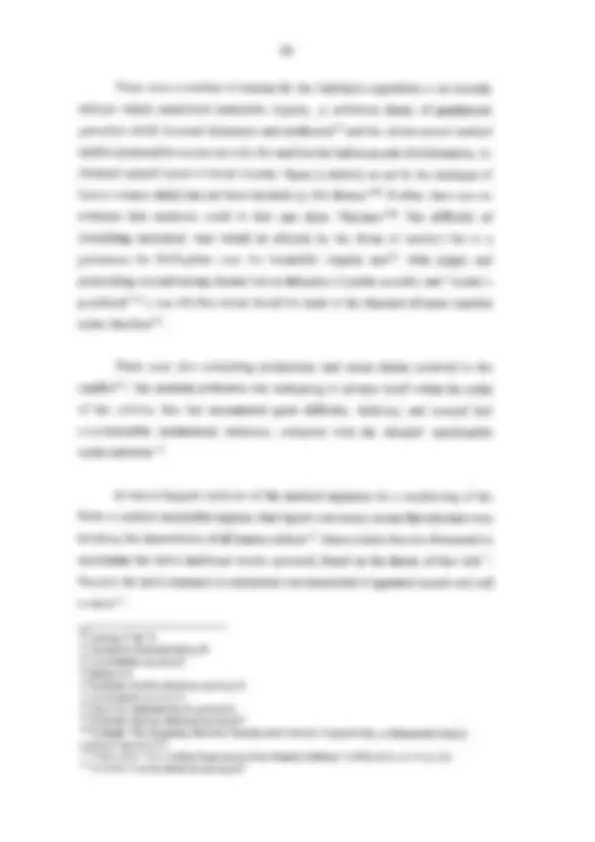
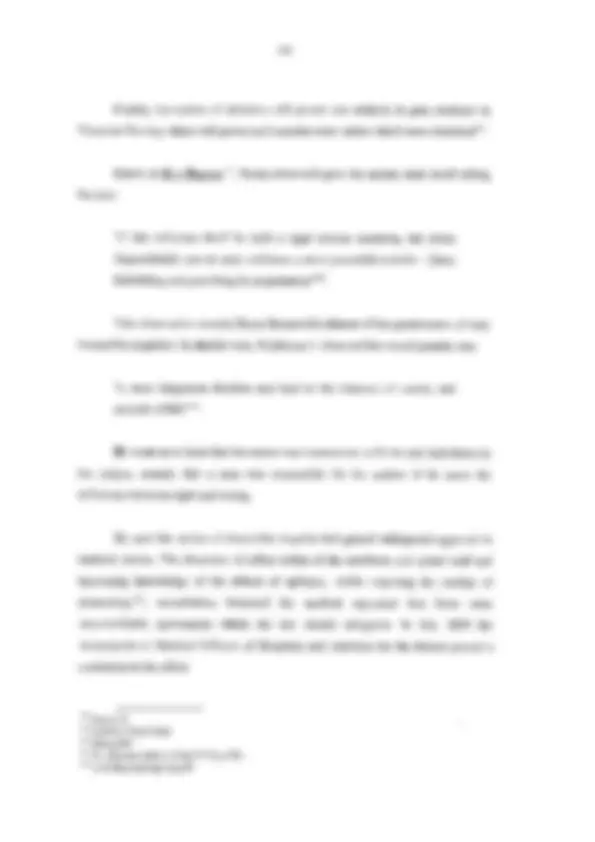
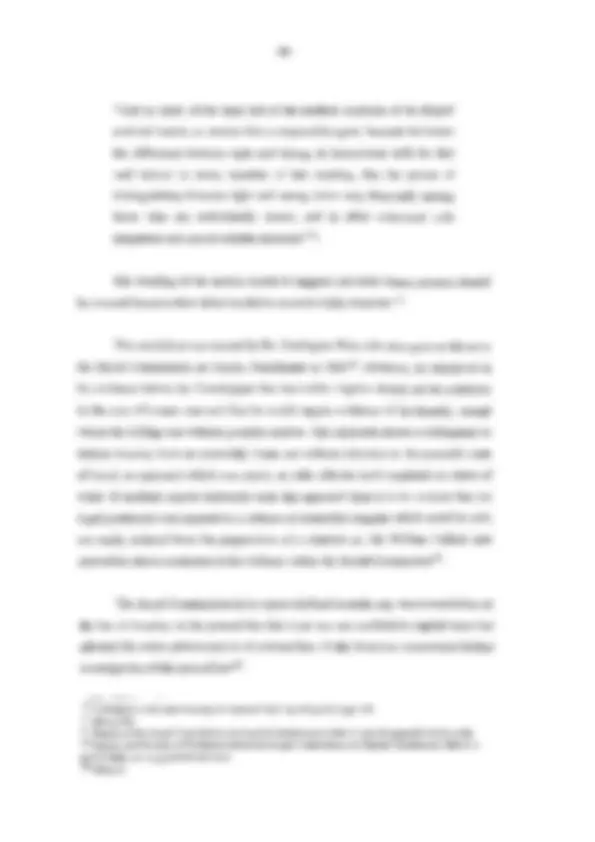
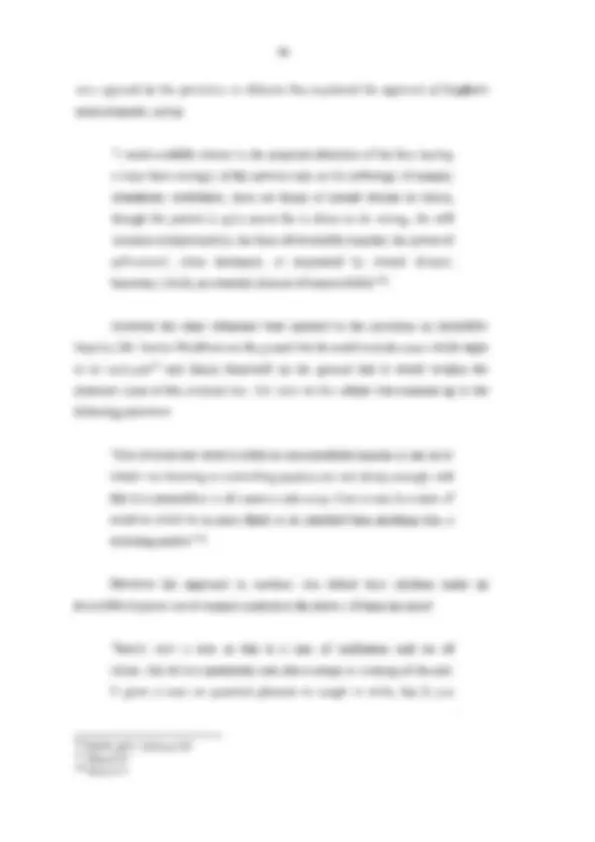
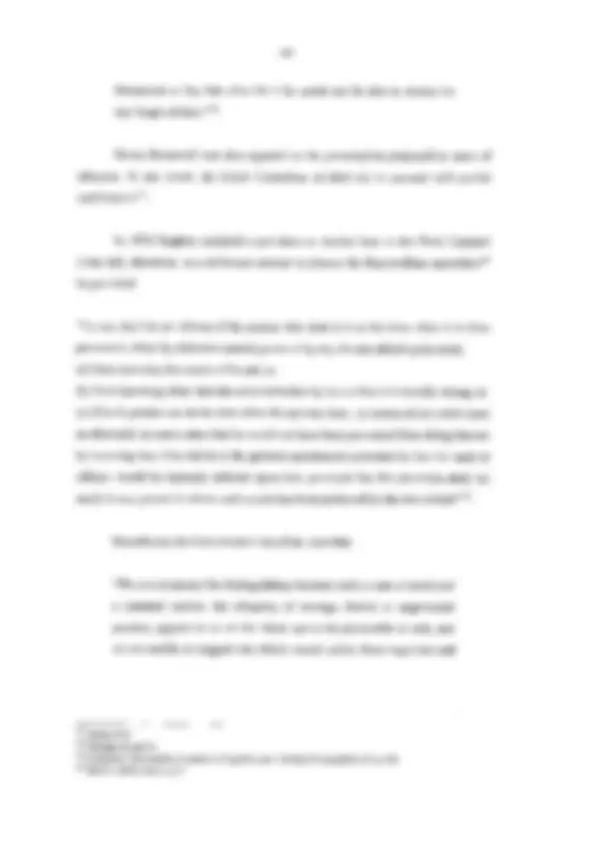
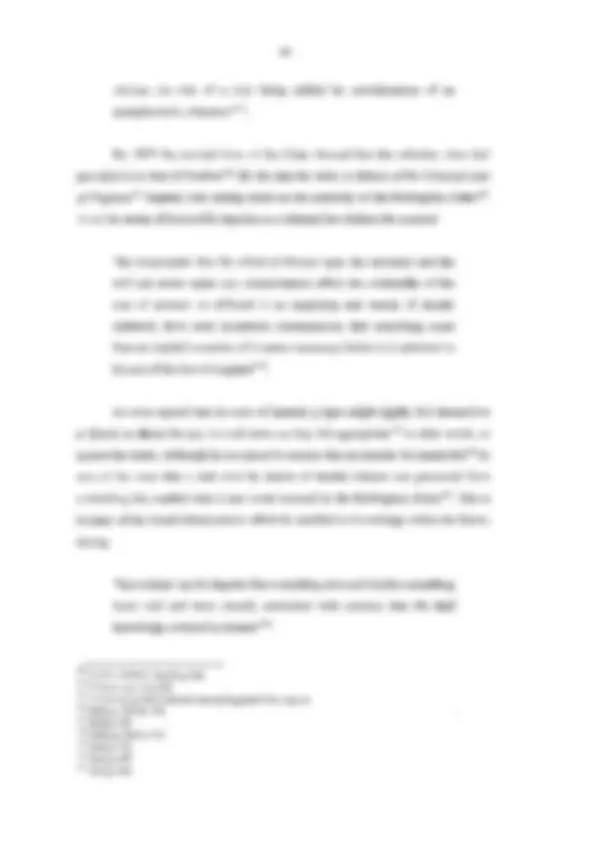
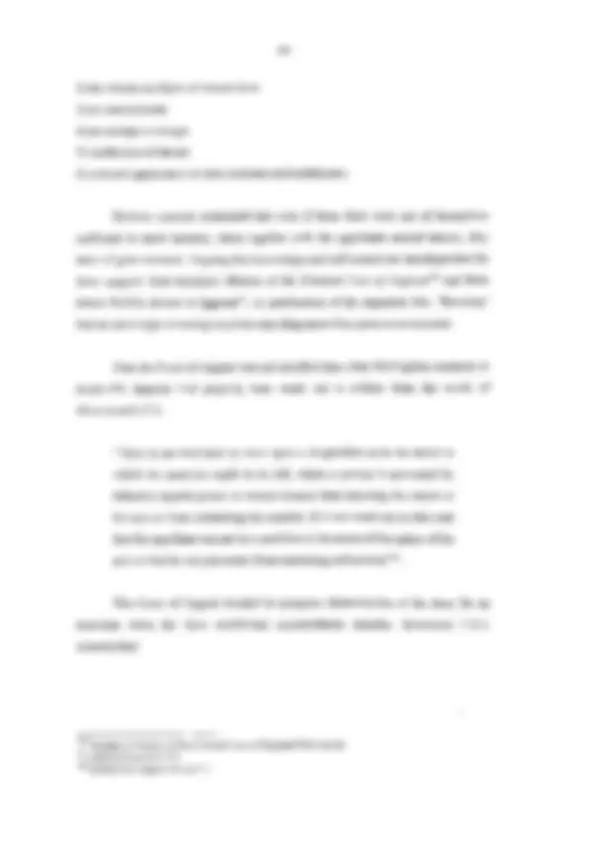
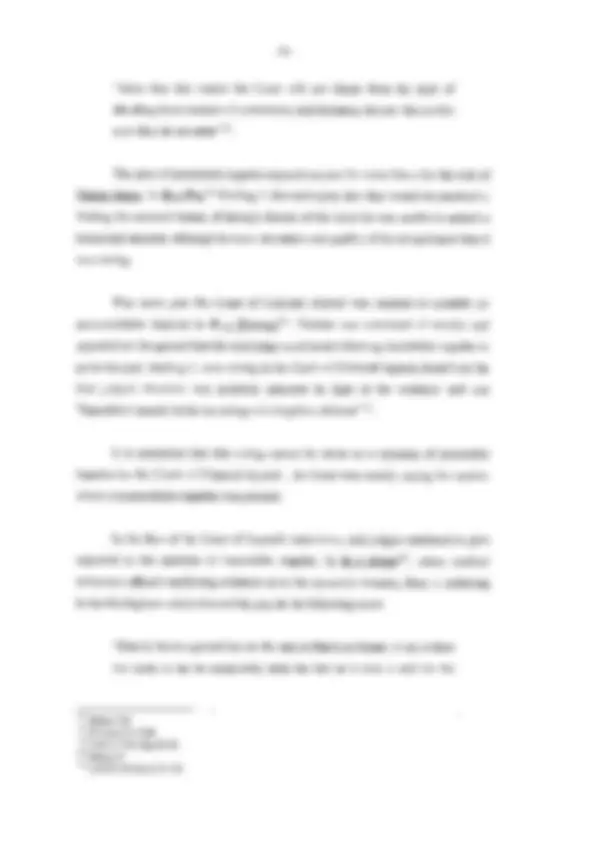
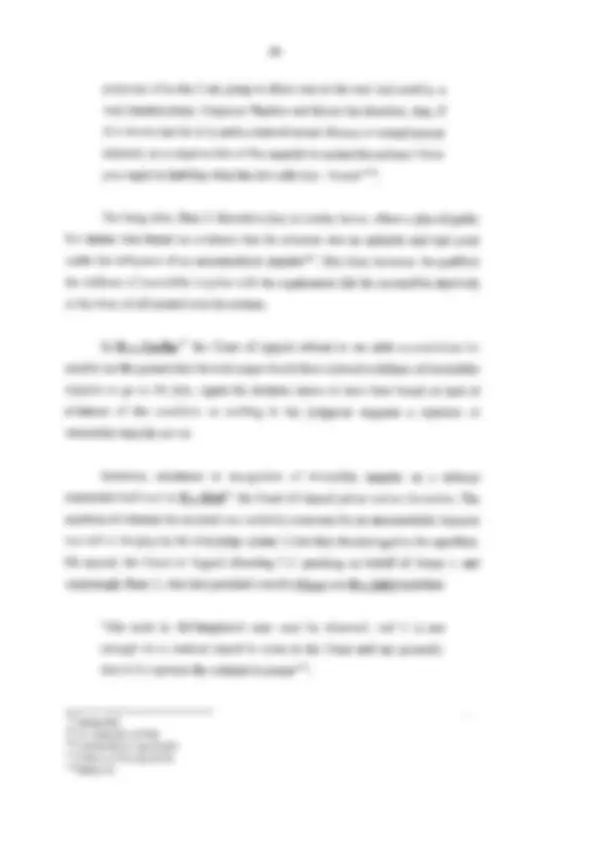
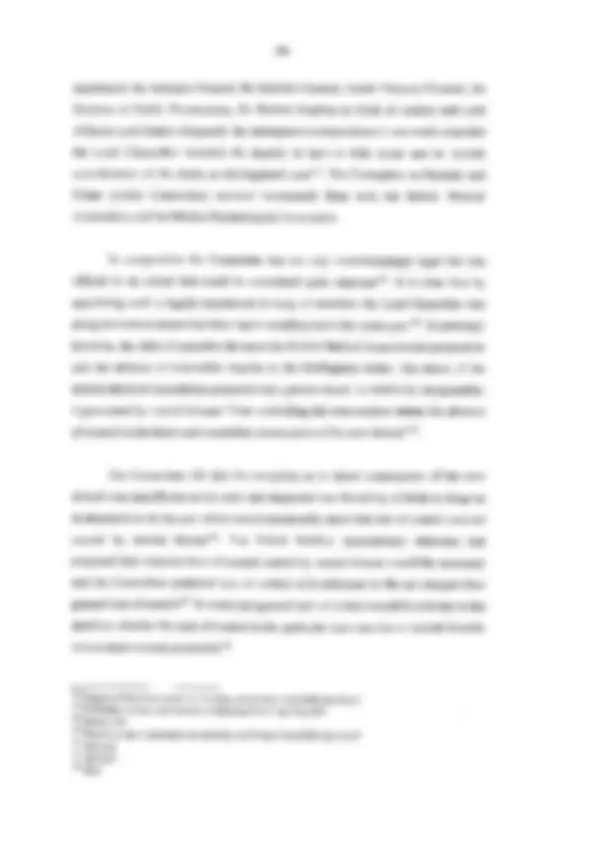
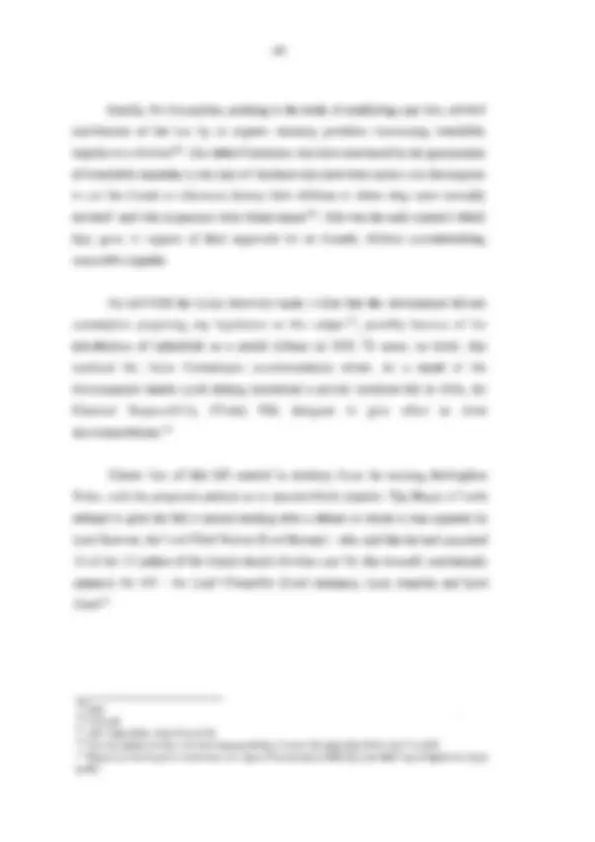
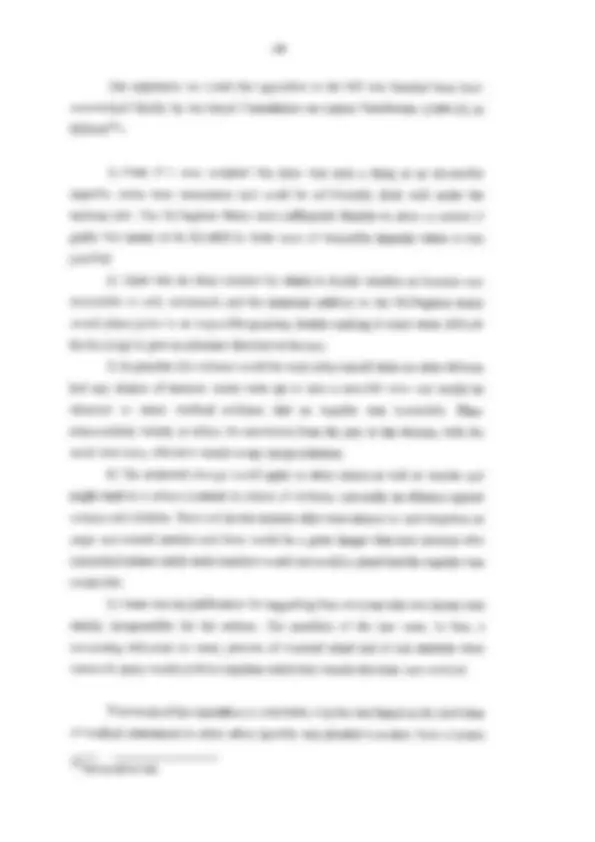
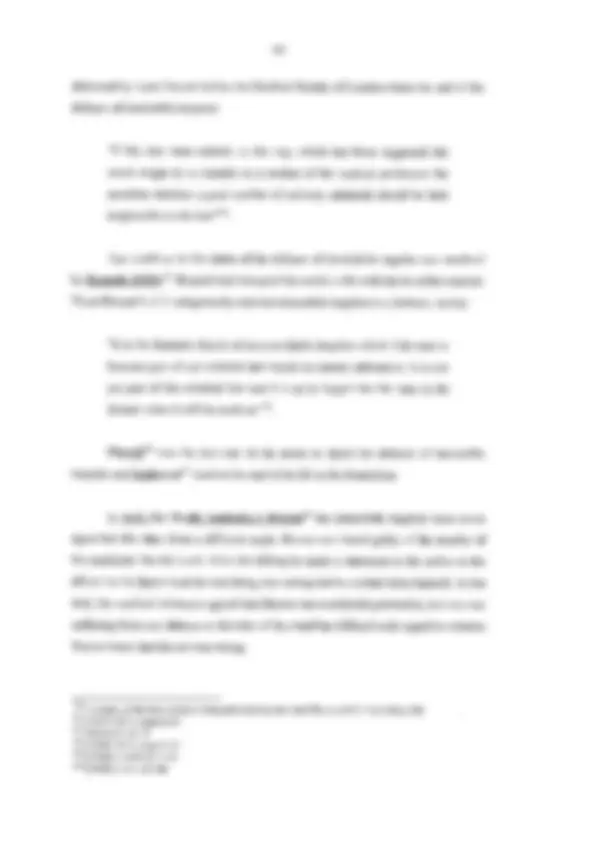
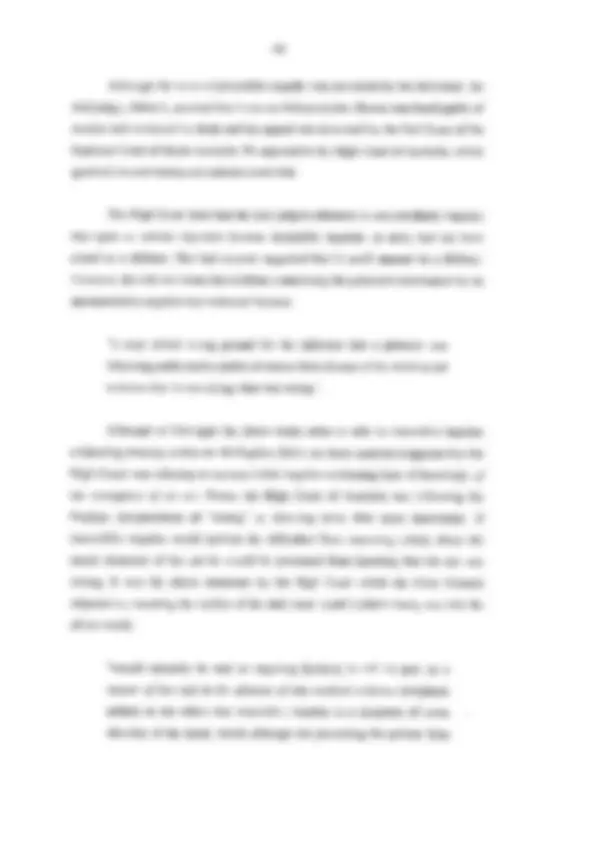
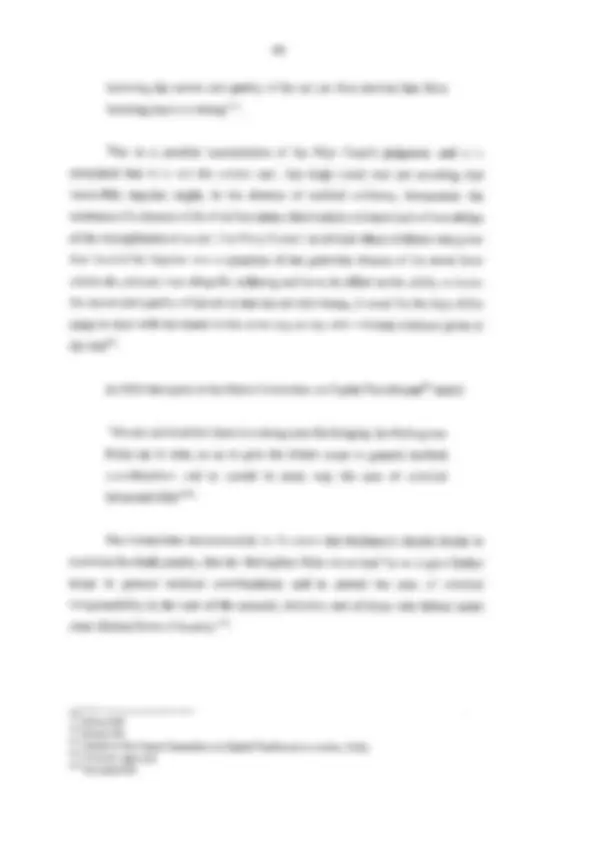
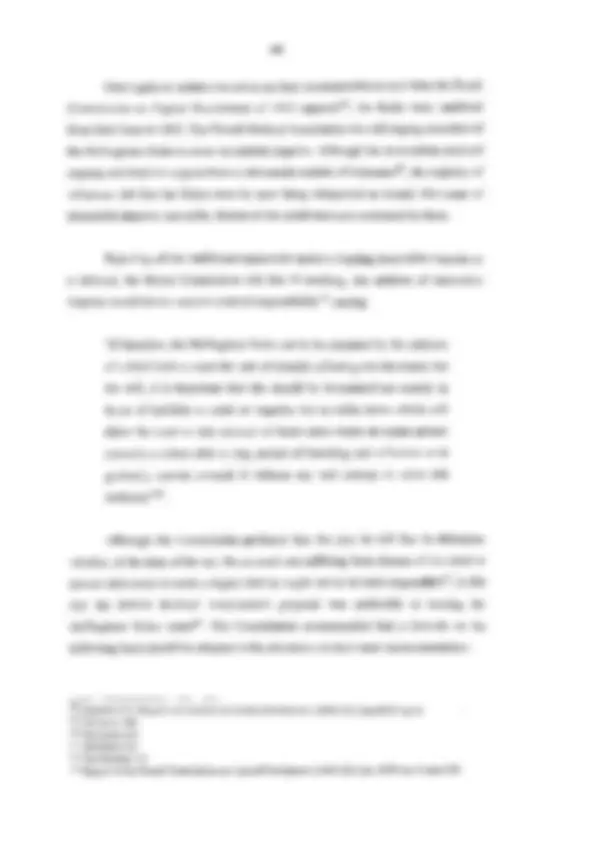
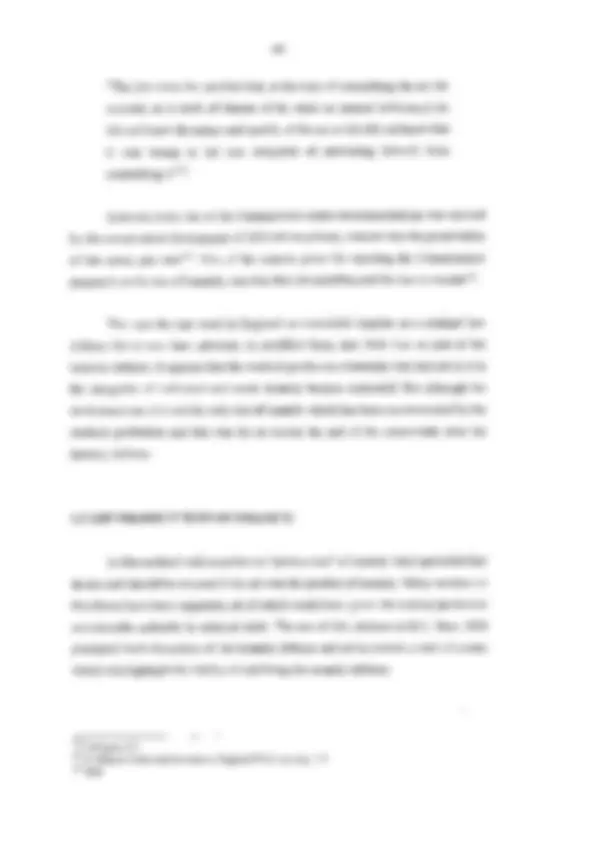
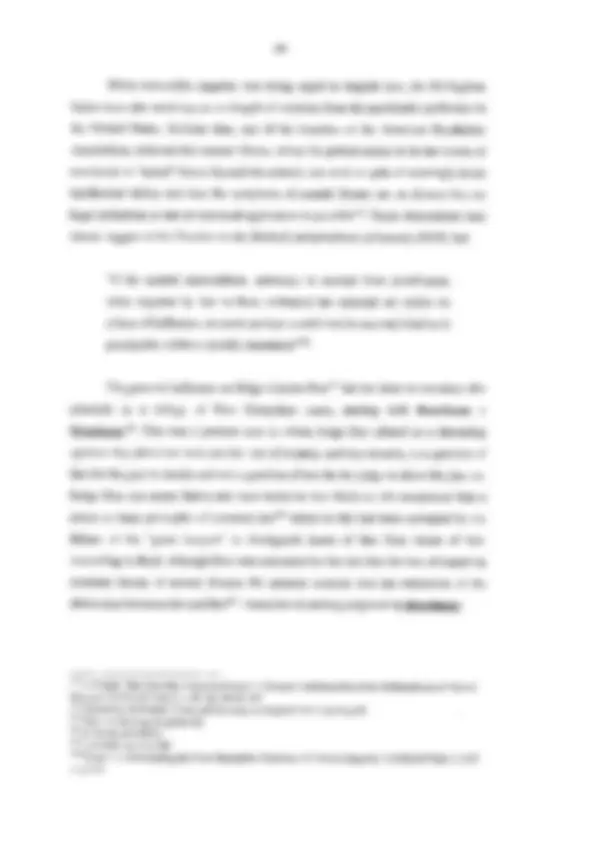
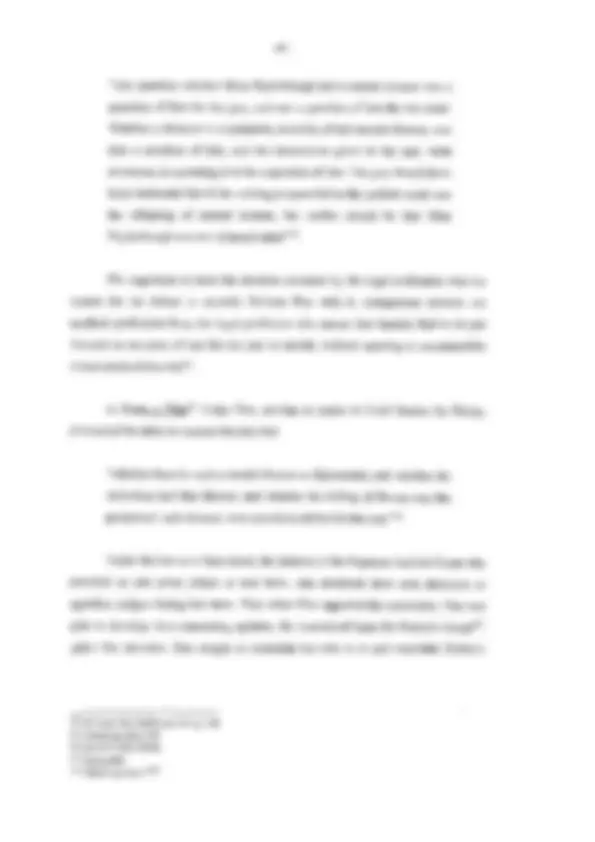
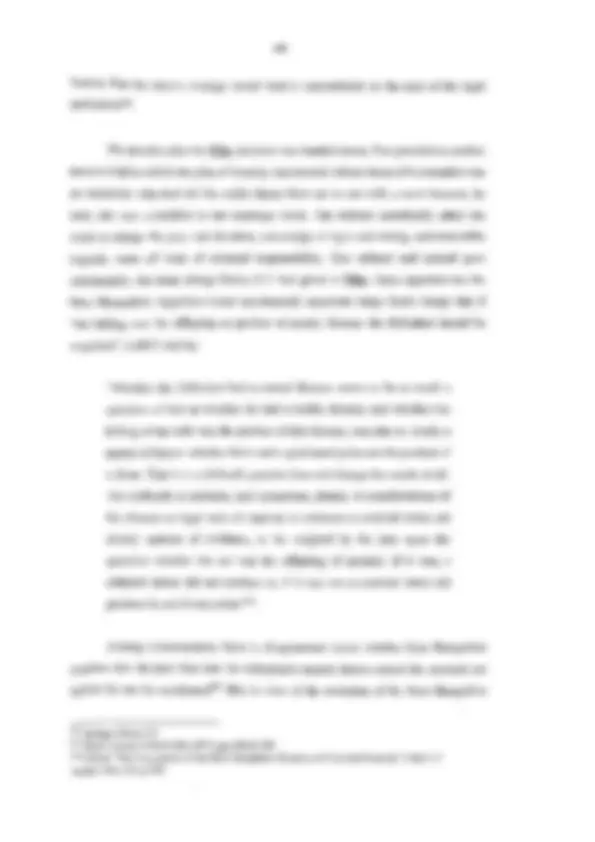
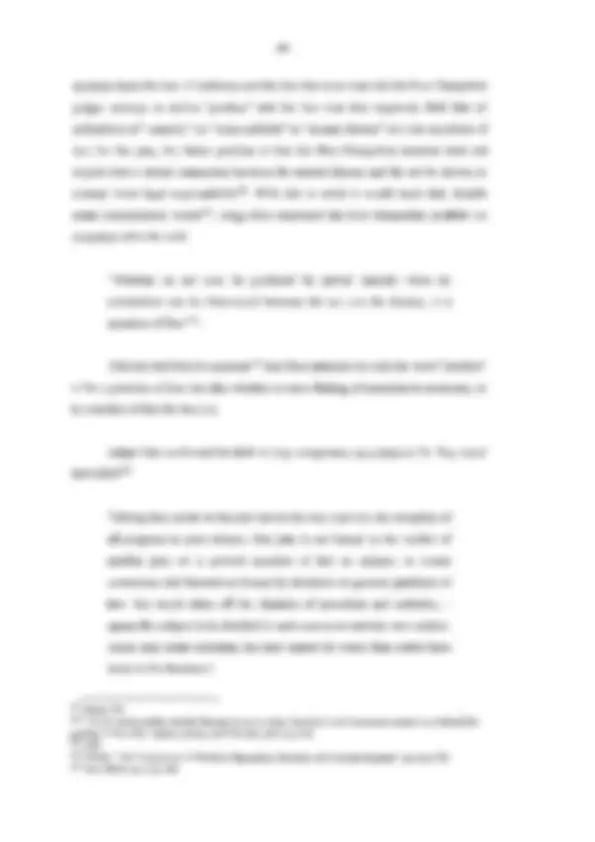
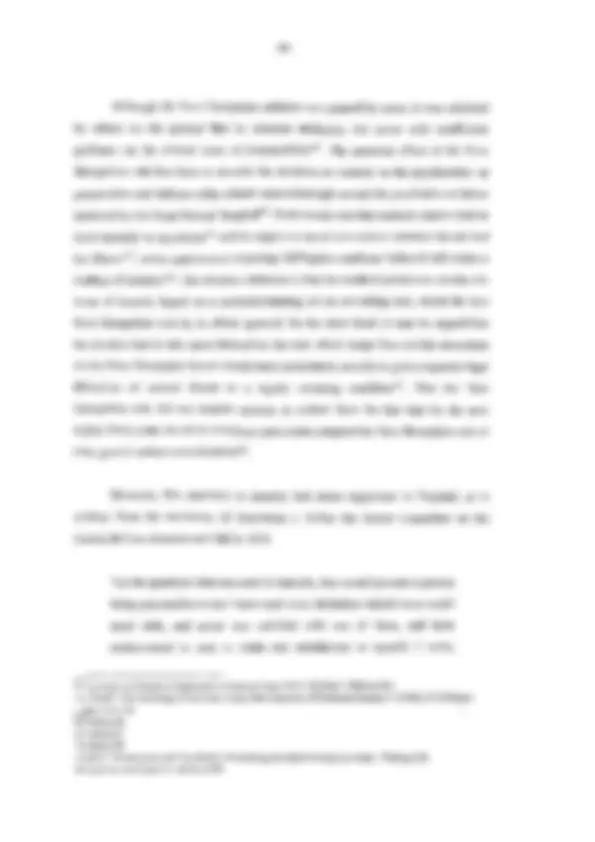
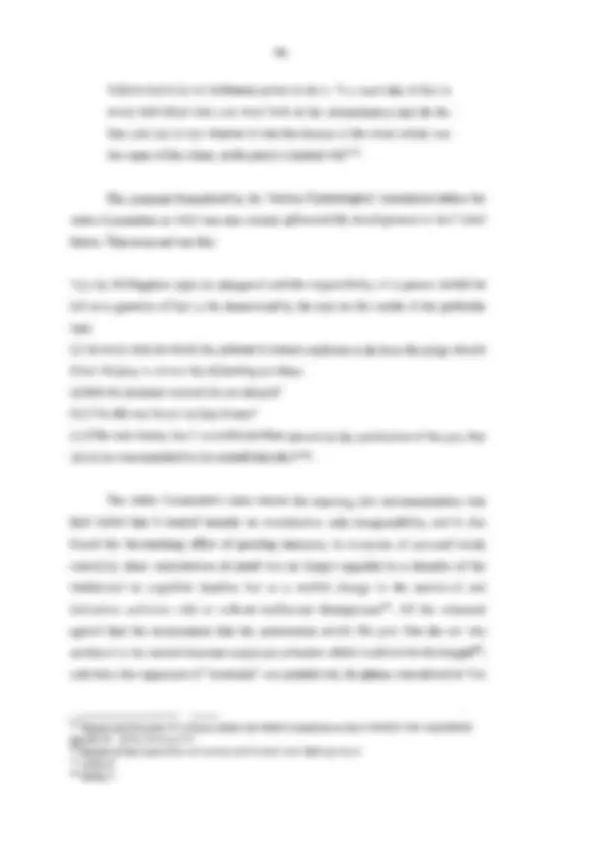
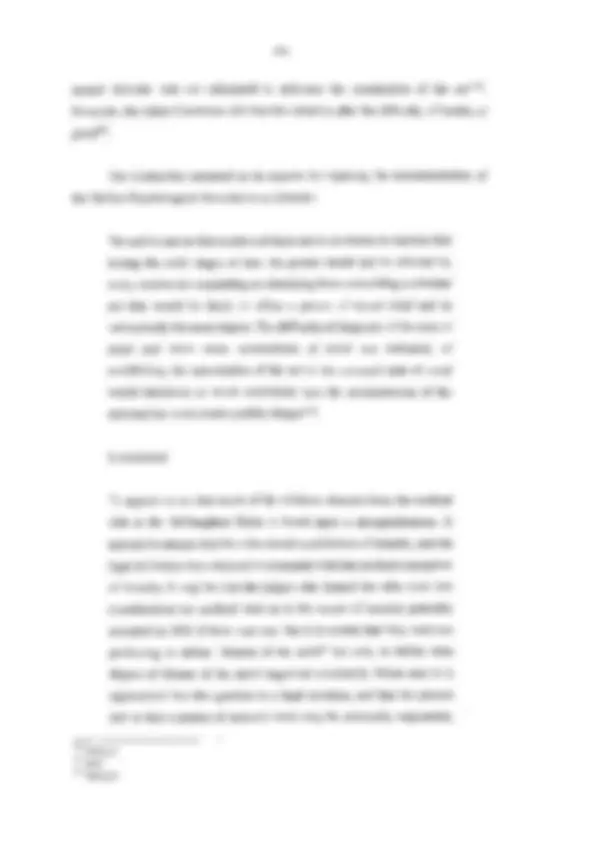
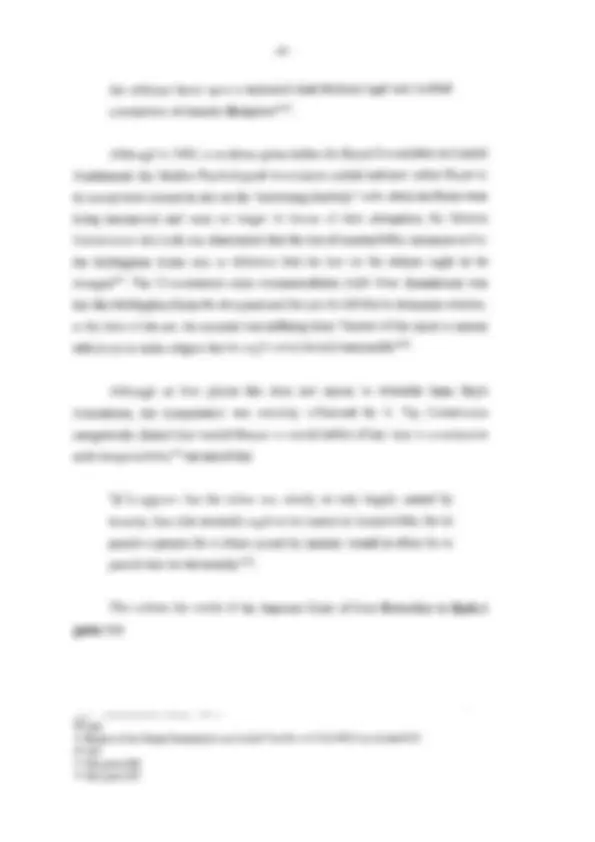
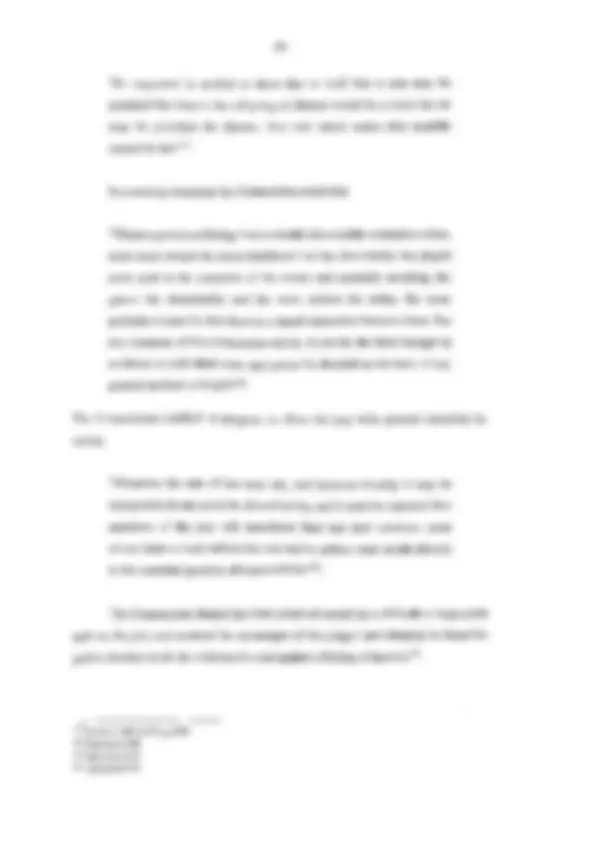
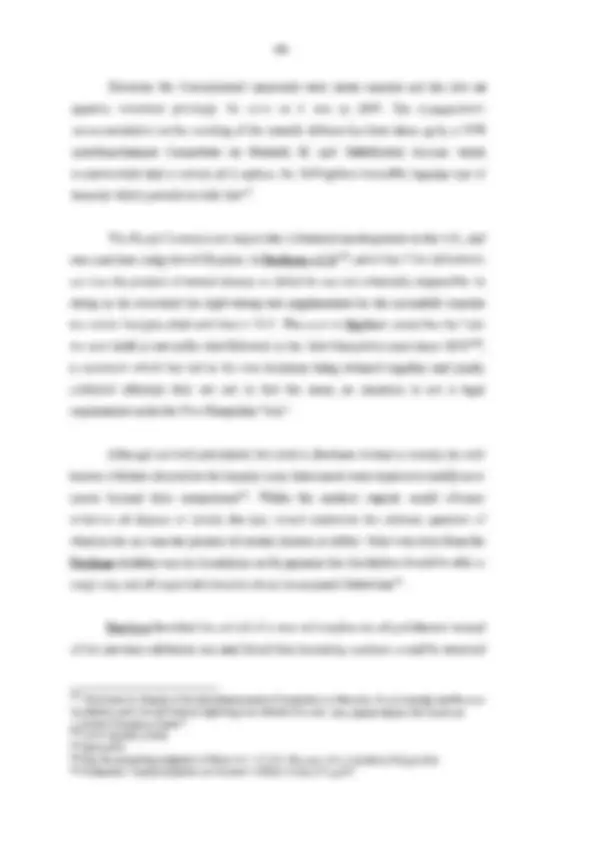
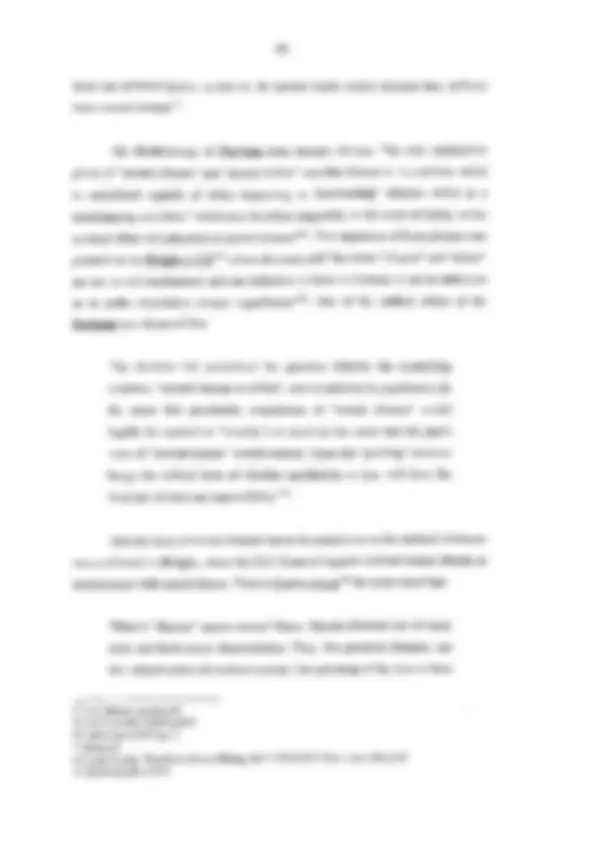
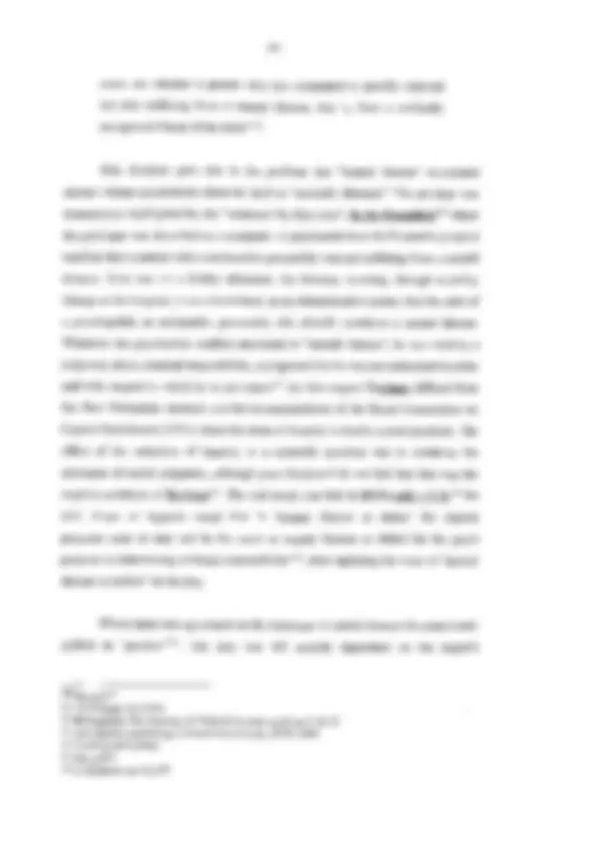
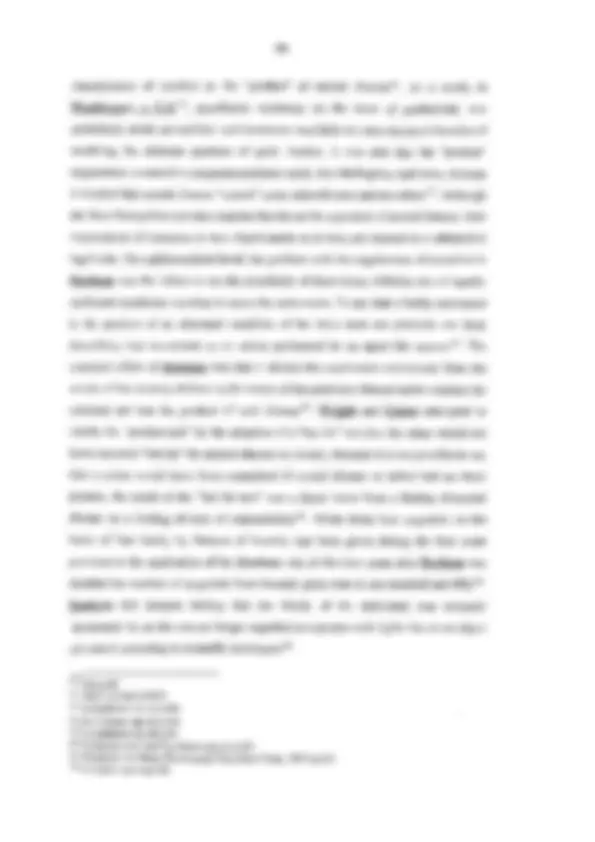
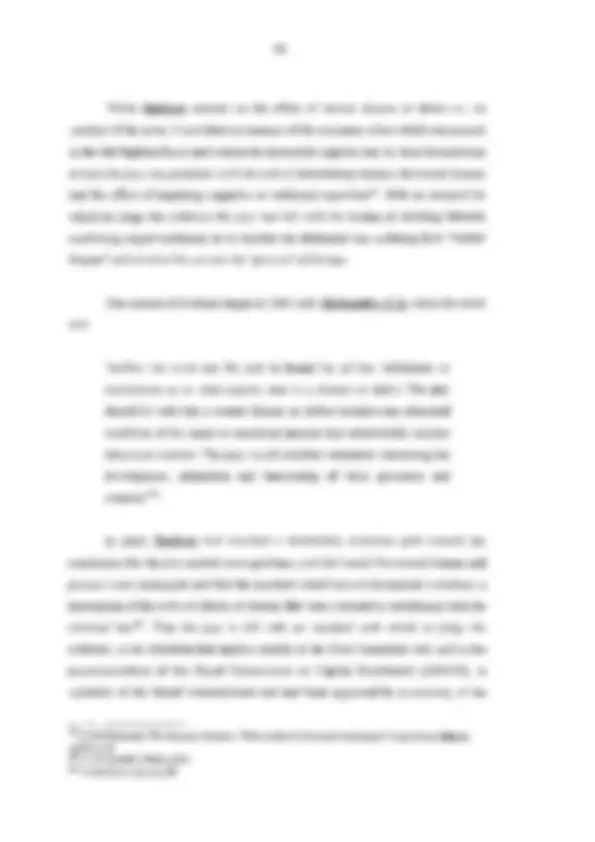
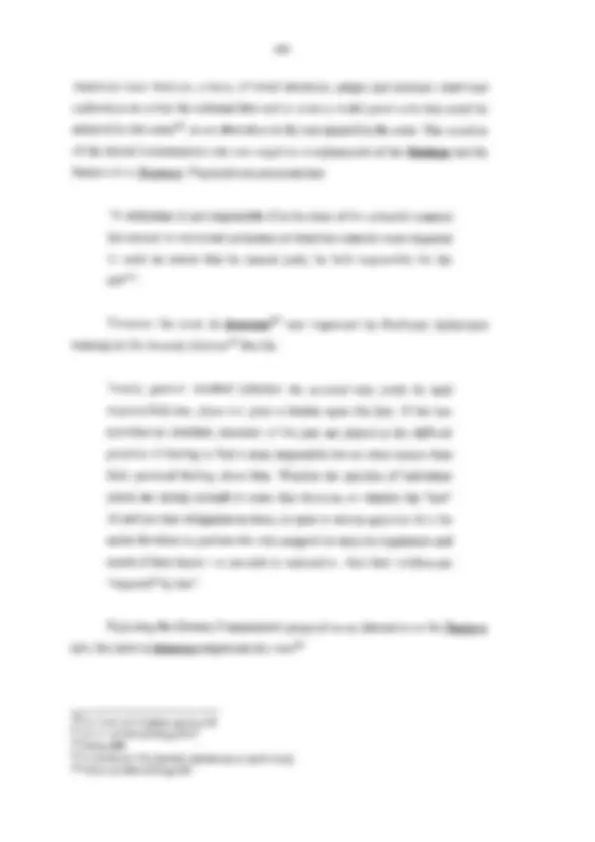
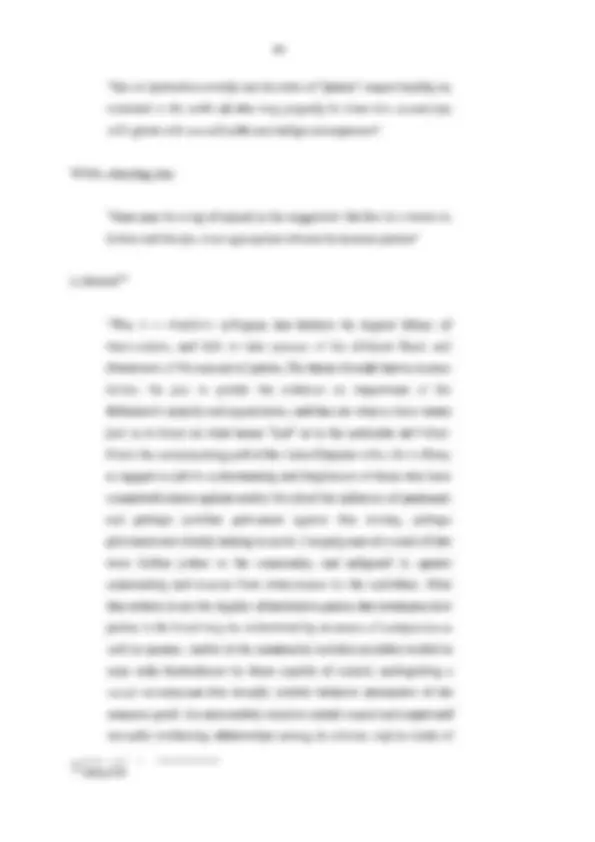
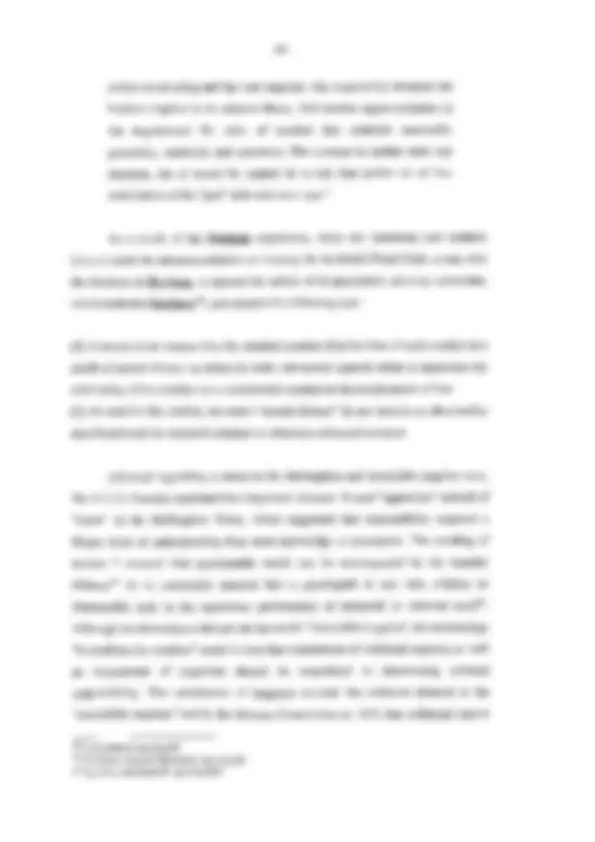
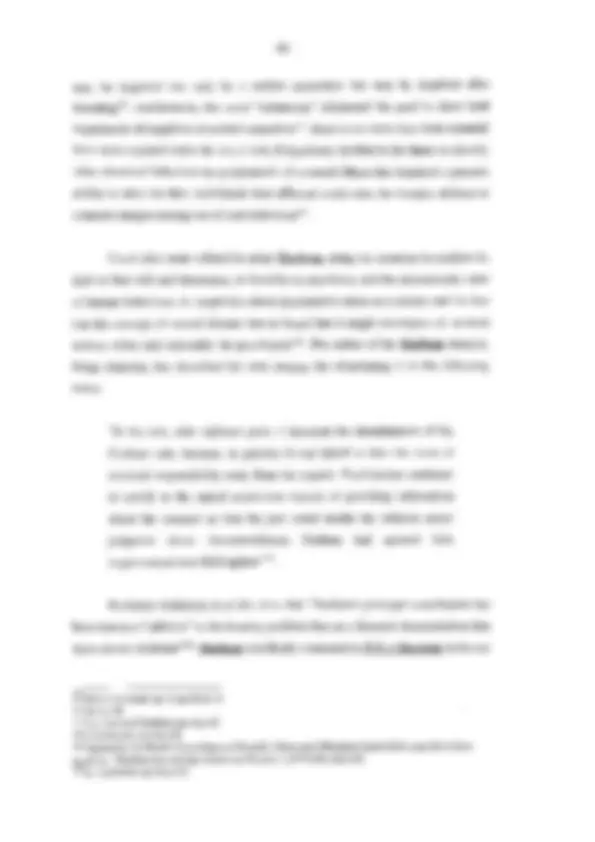
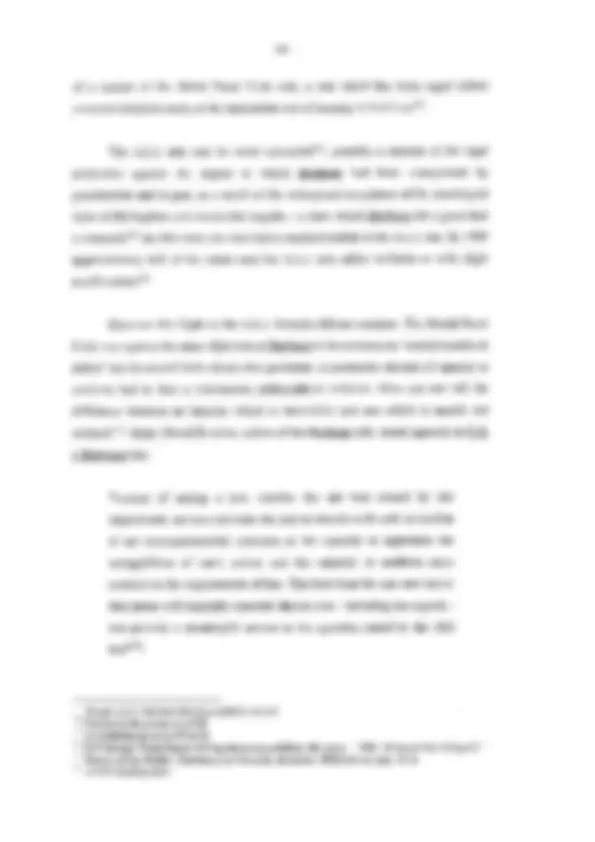
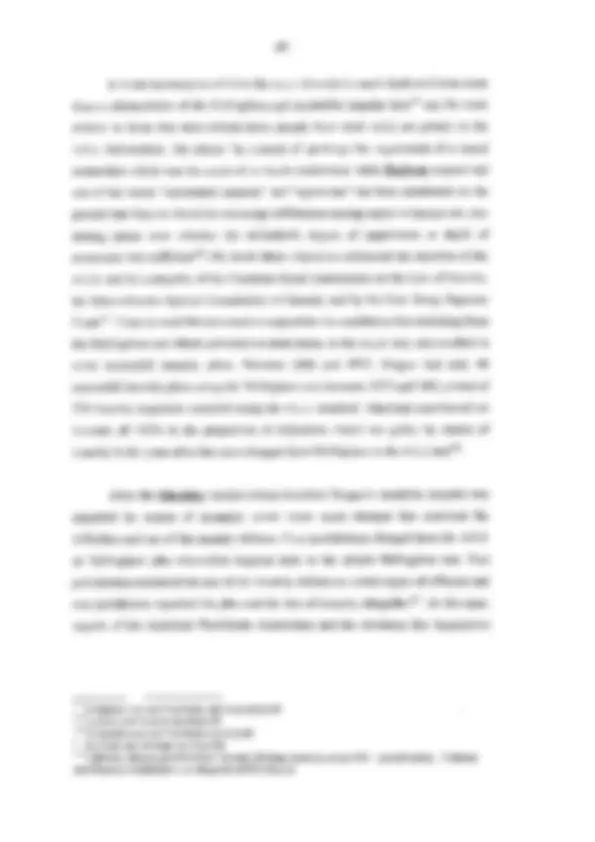
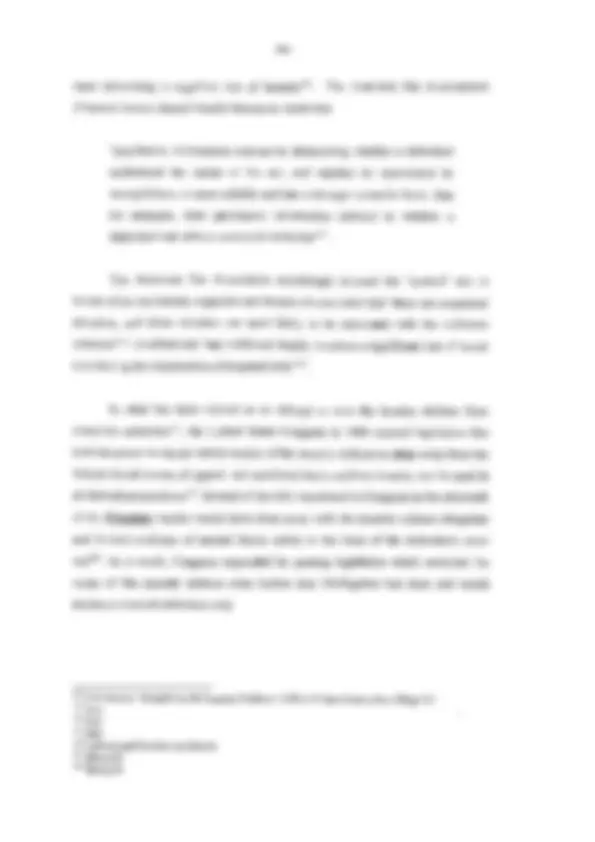
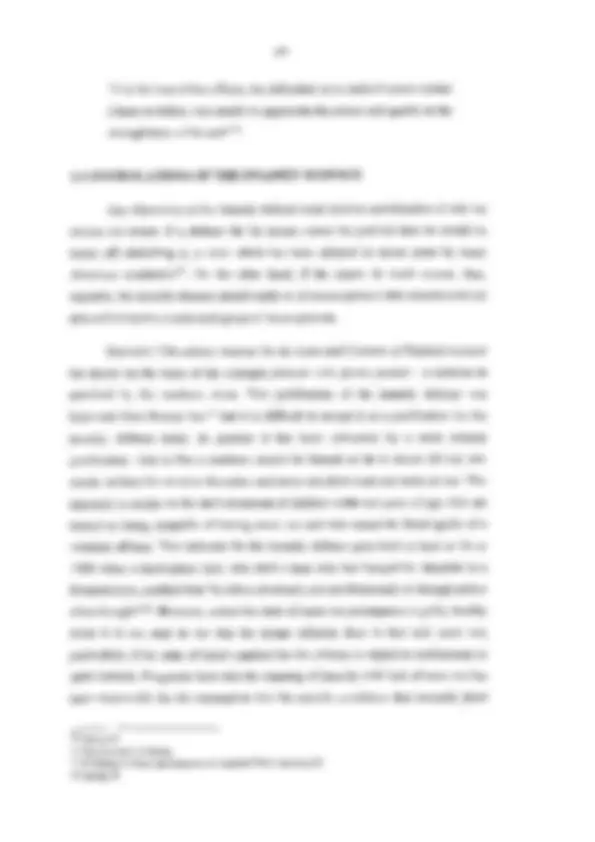
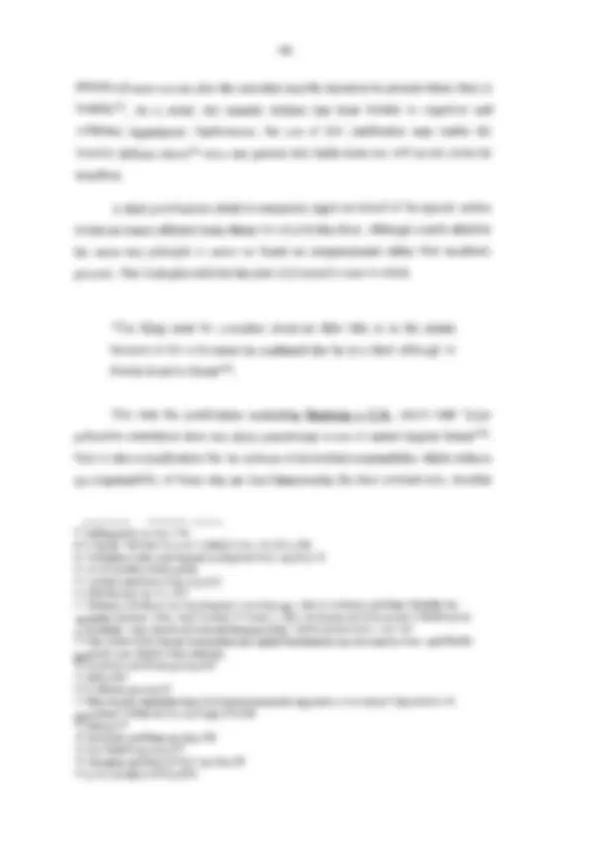
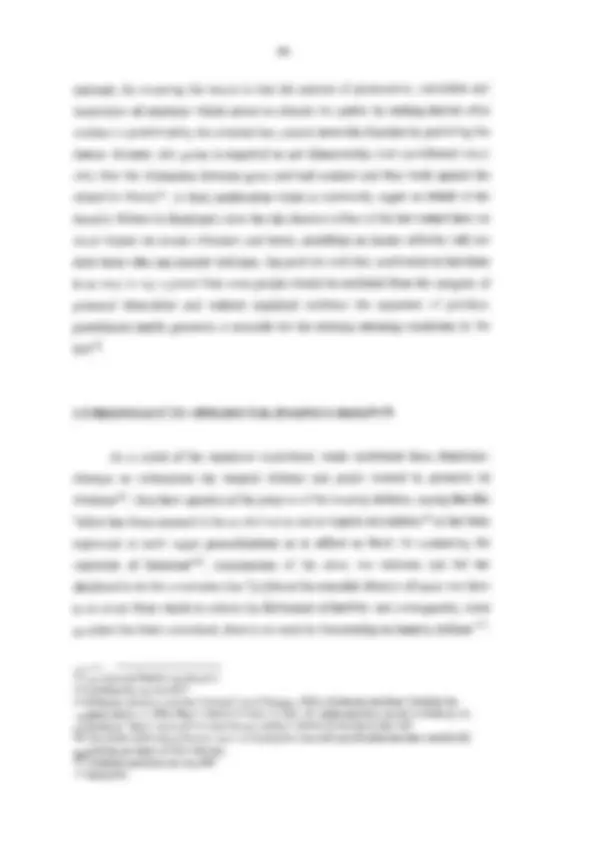
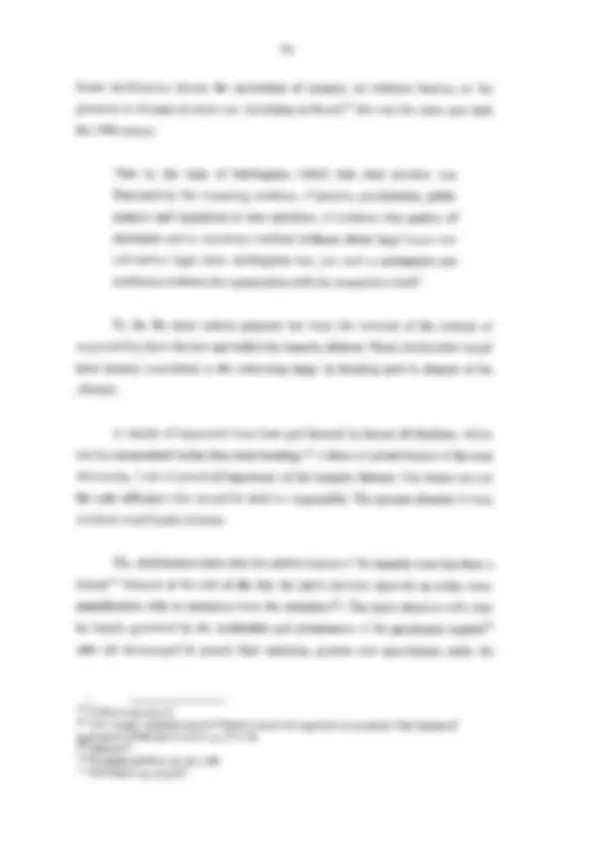
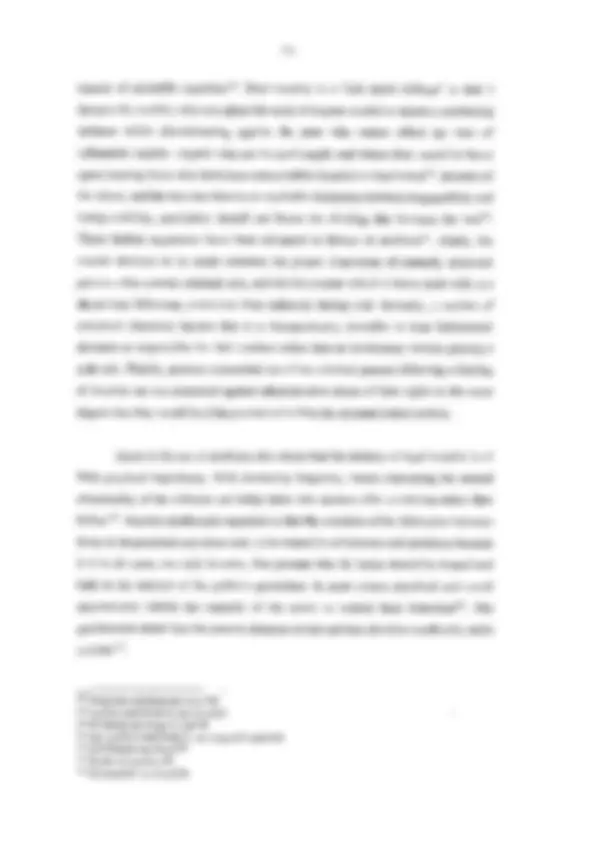
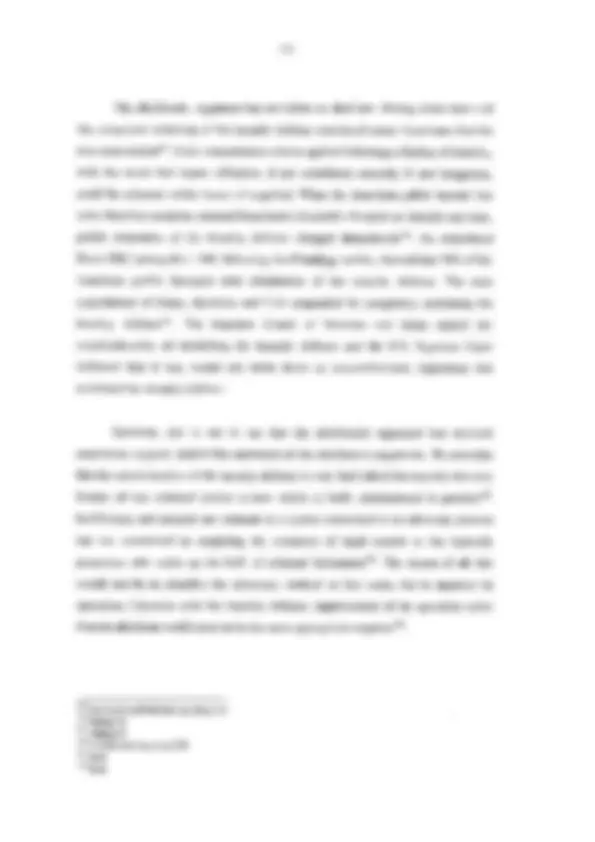
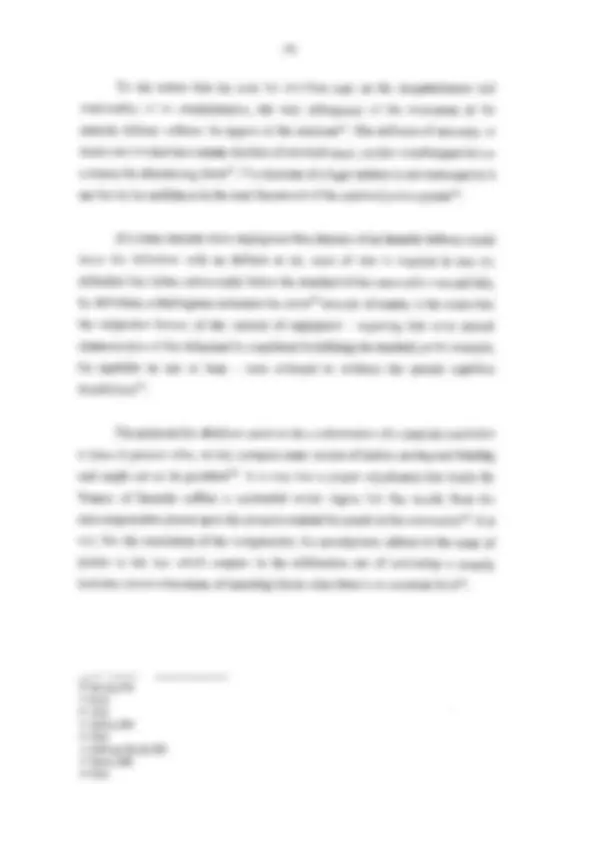
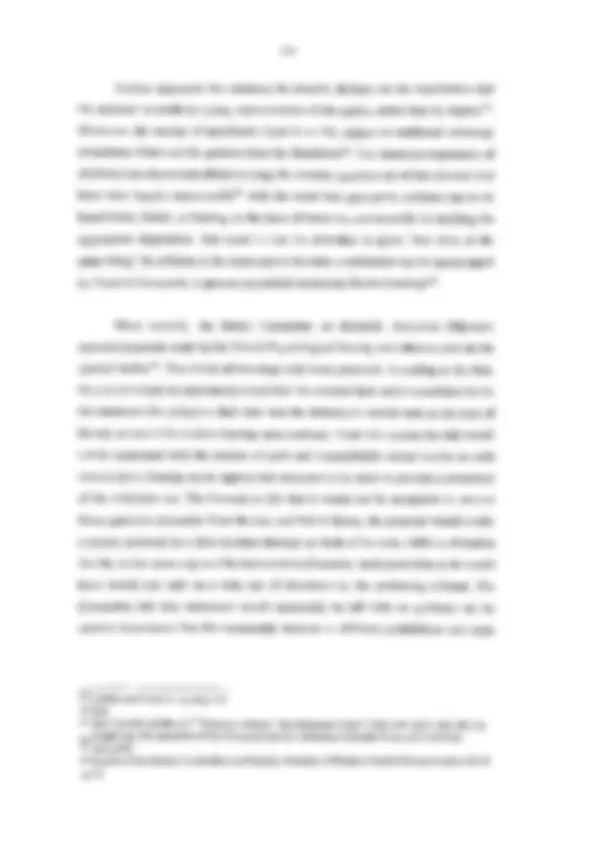
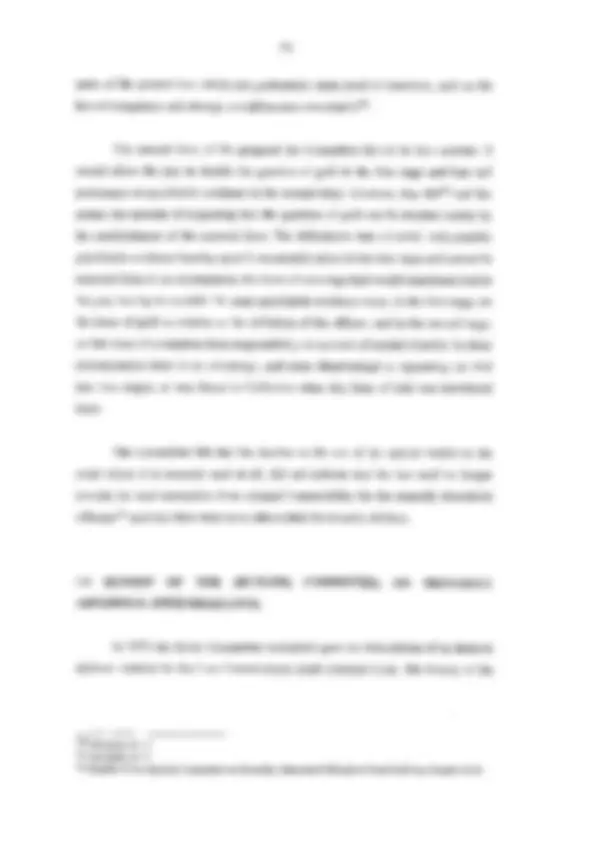
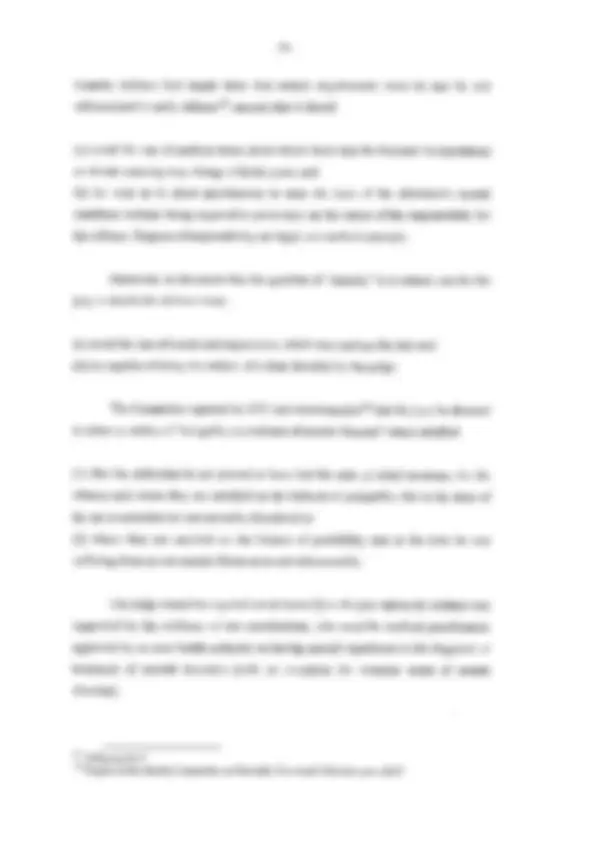
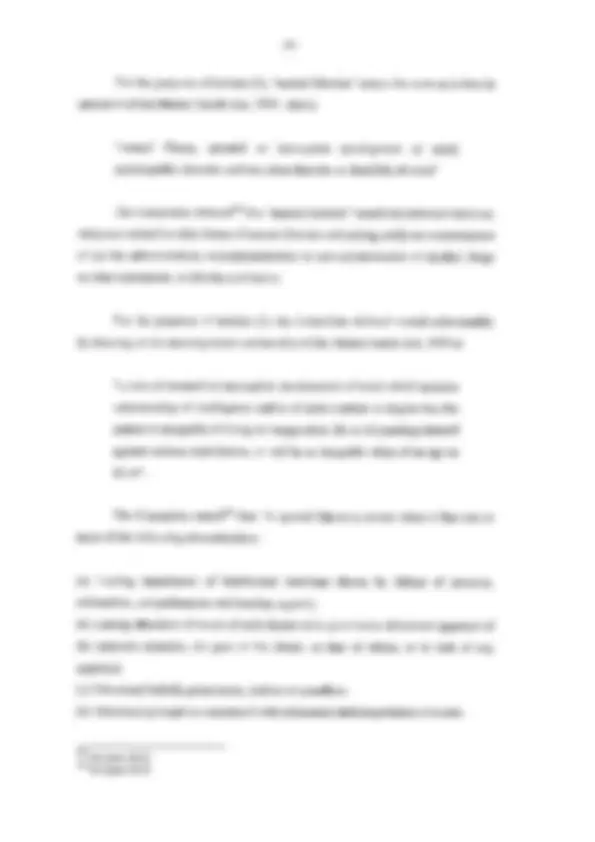
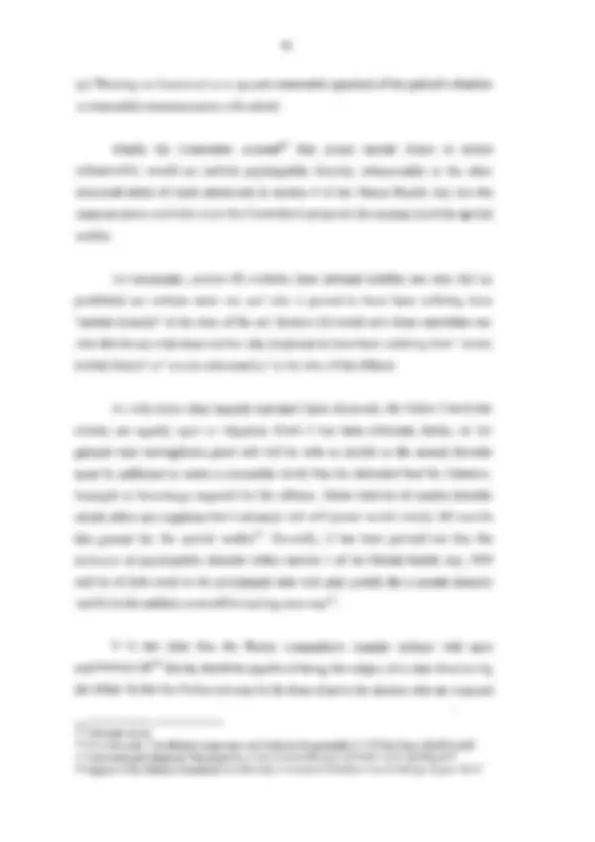
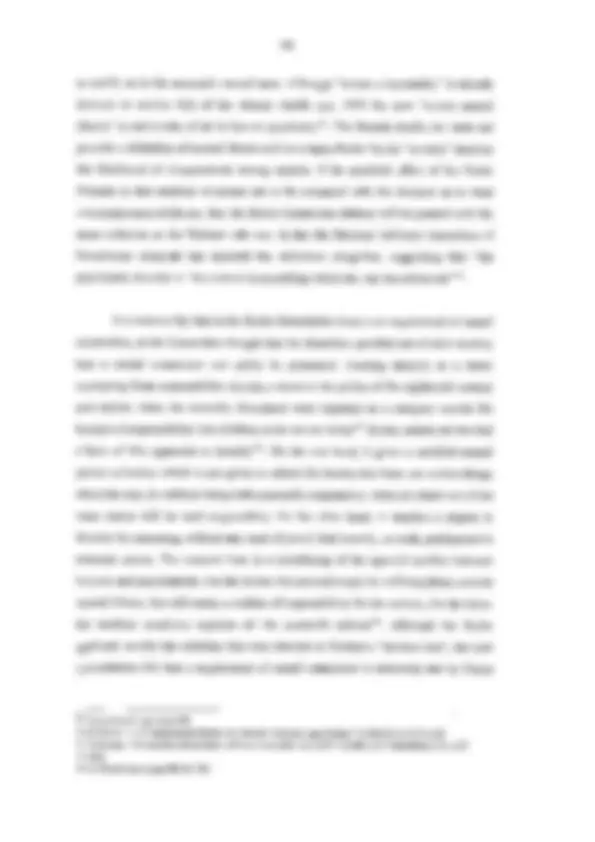
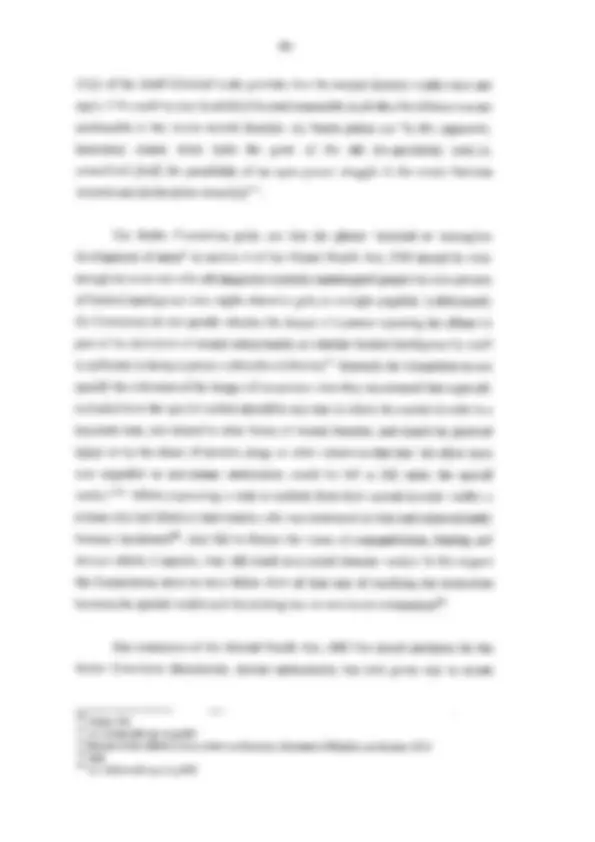
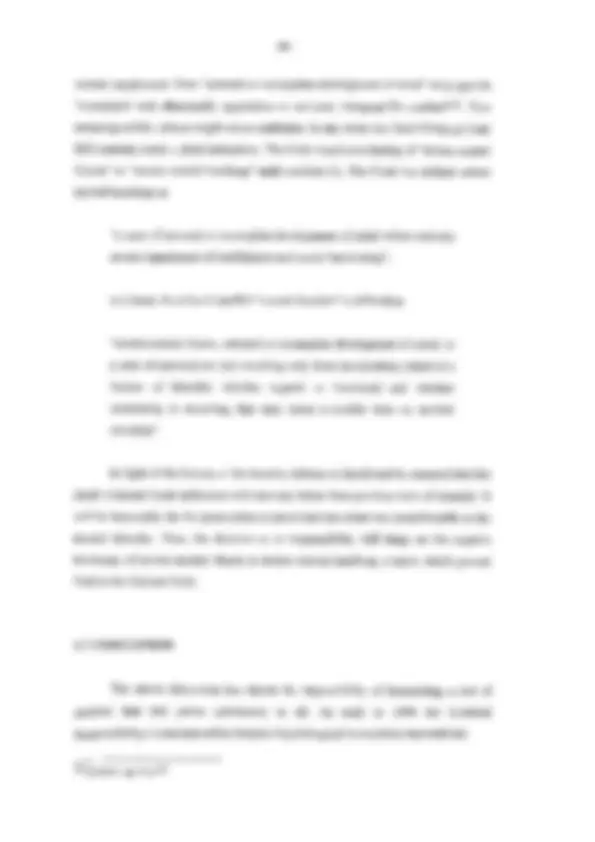
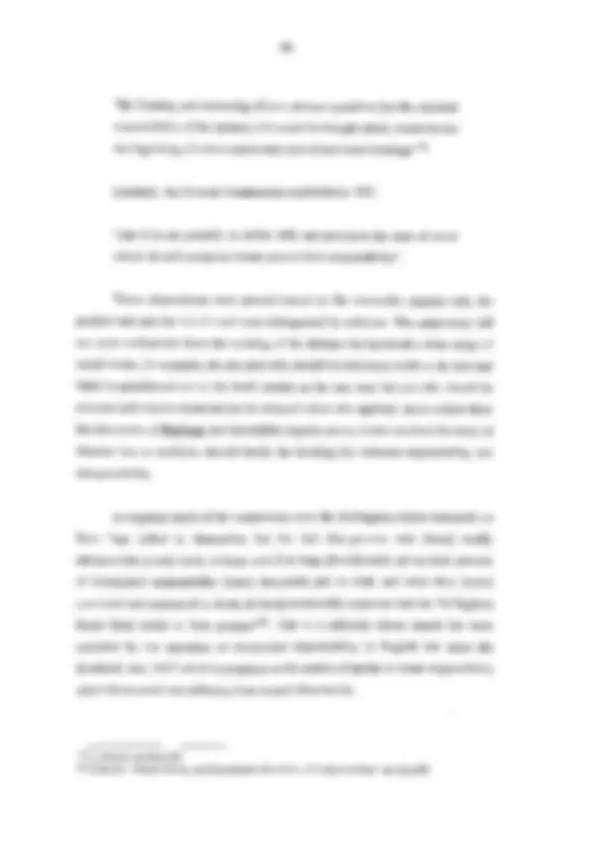
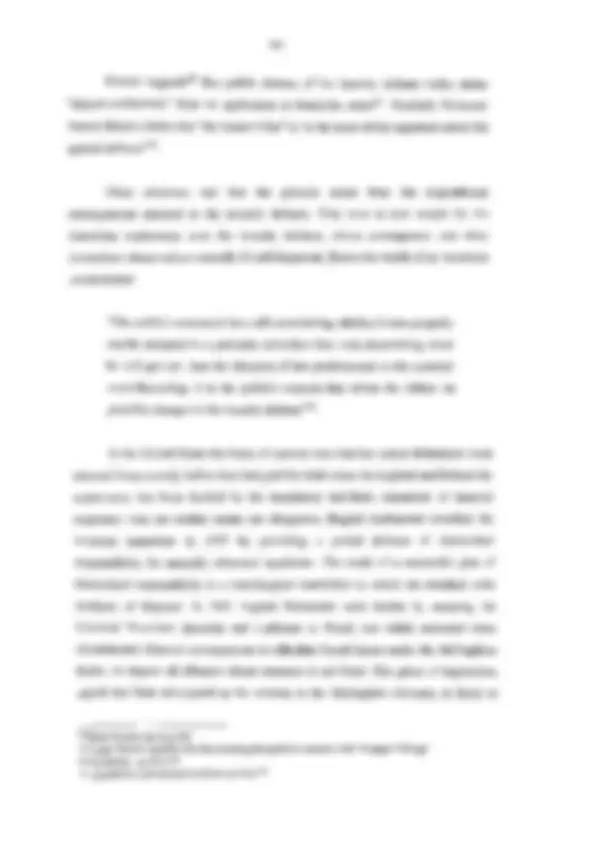
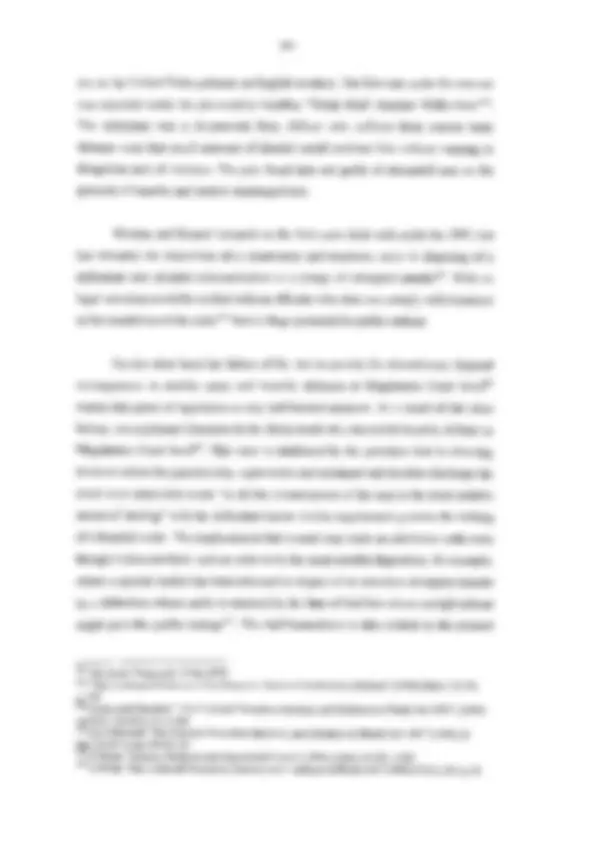
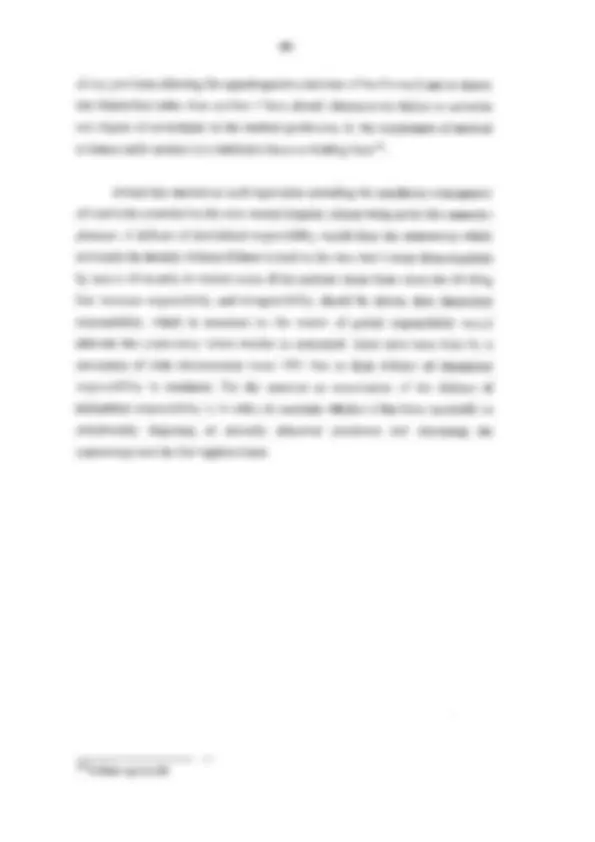
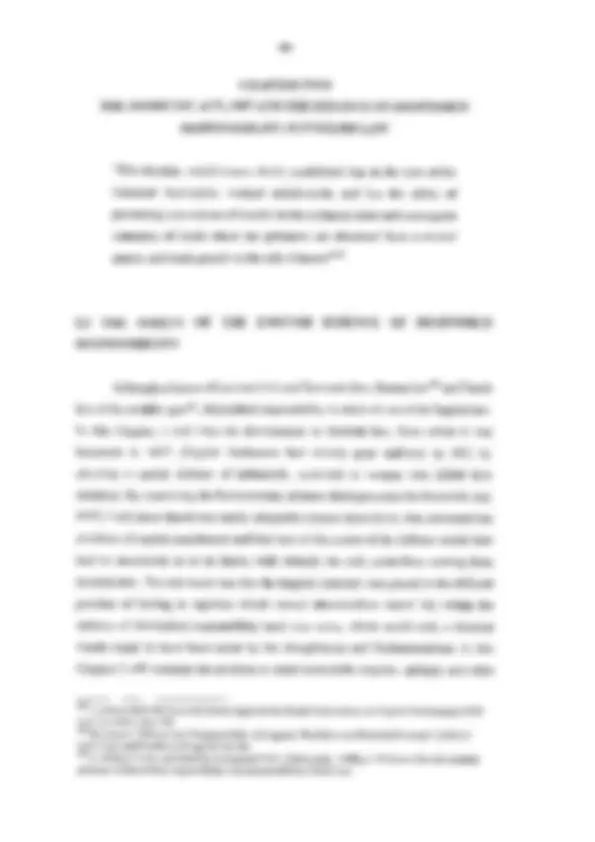
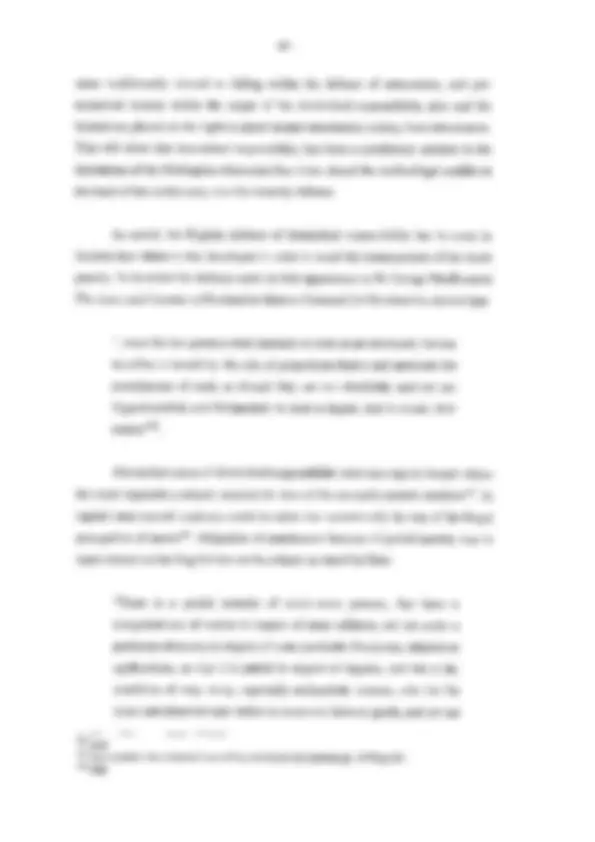
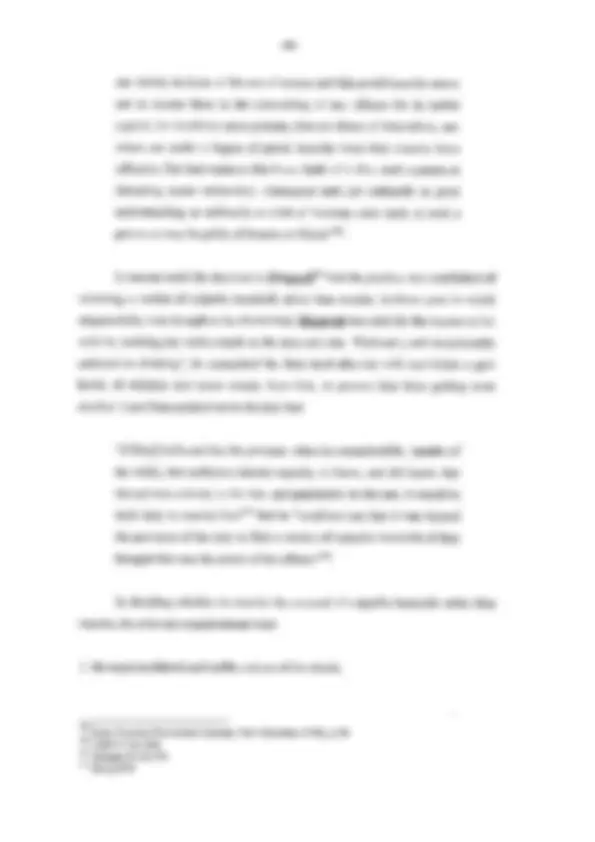
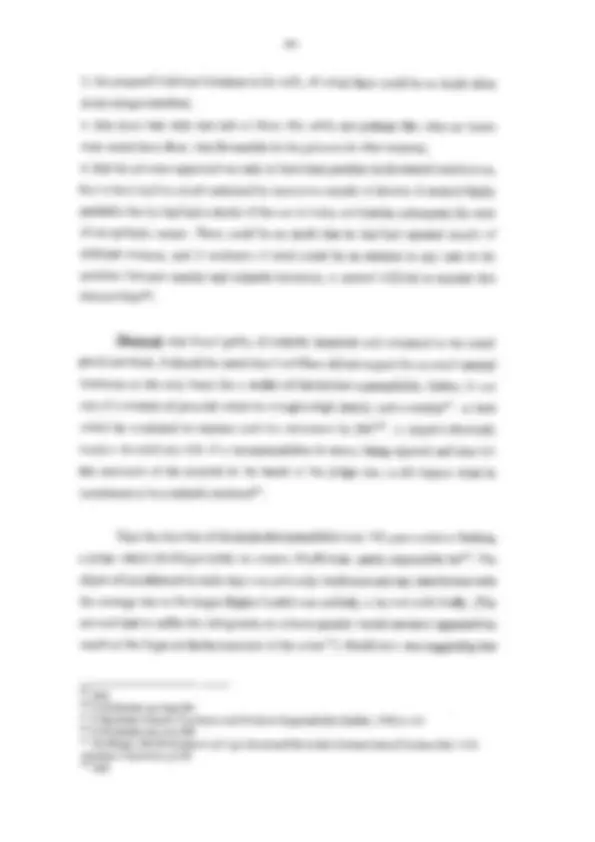
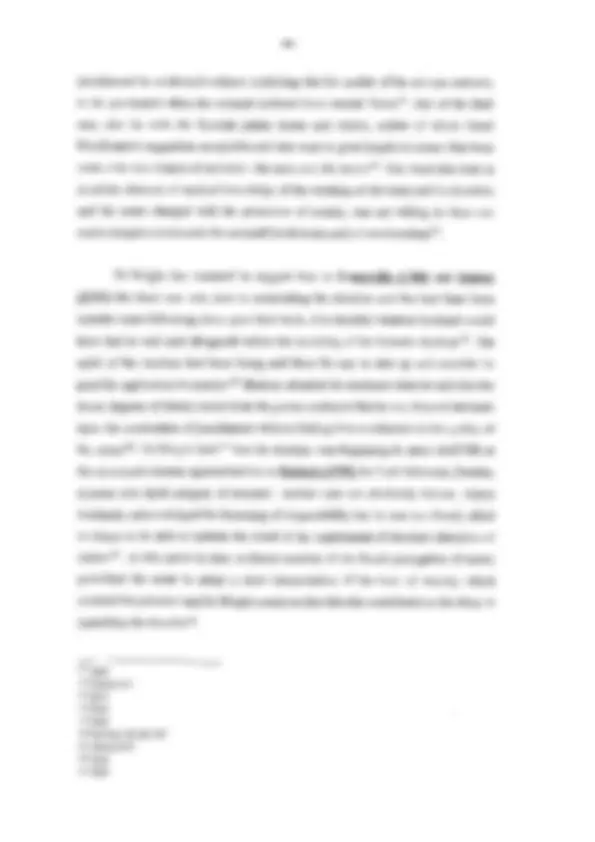
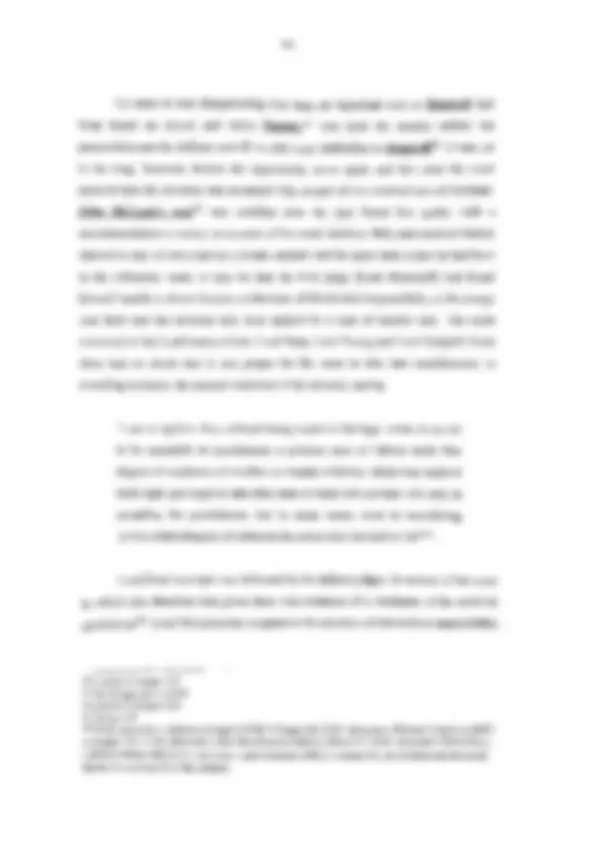
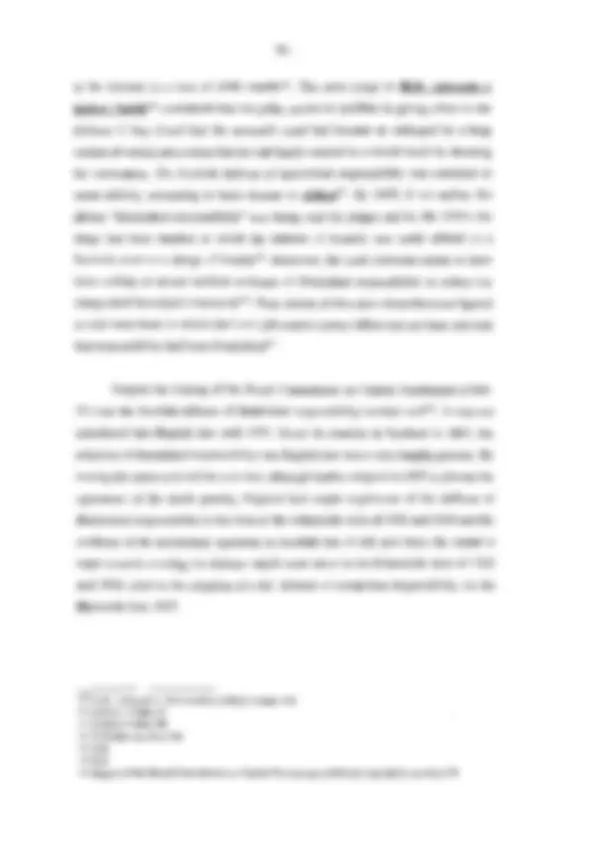
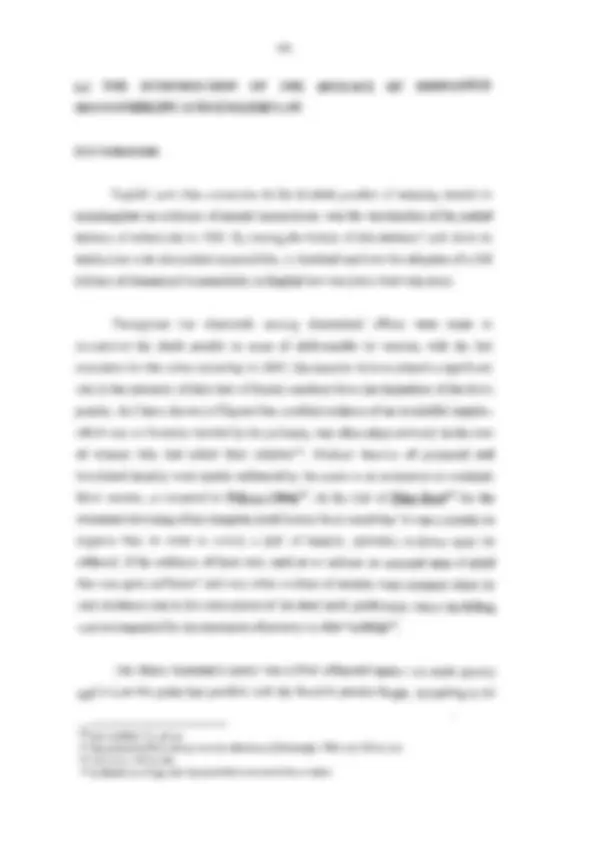
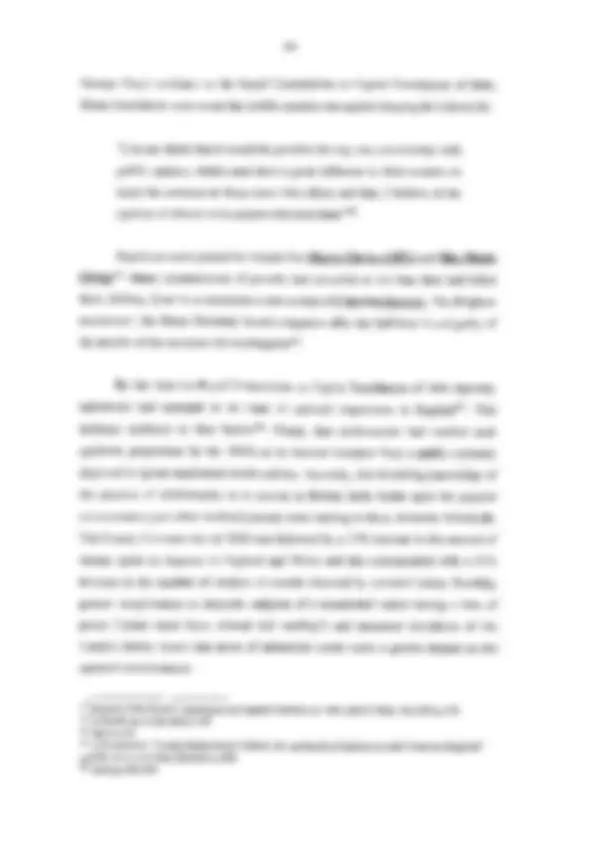
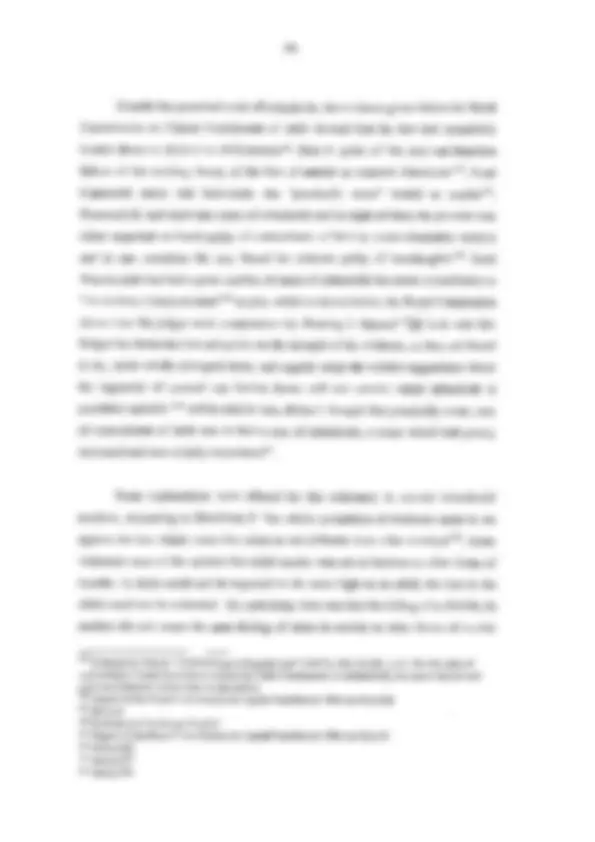



























Study with the several resources on Docsity

Earn points by helping other students or get them with a premium plan


Prepare for your exams
Study with the several resources on Docsity

Earn points to download
Earn points by helping other students or get them with a premium plan
Community
Ask the community for help and clear up your study doubts
Discover the best universities in your country according to Docsity users
Free resources
Download our free guides on studying techniques, anxiety management strategies, and thesis advice from Docsity tutors
The need for a diminished responsibility defense in Irish law and provides guidelines for its procedural issues. It also discusses the historical context of this defense, its similarities with Scotland's defense, and its impact on the insanity defense. The document critiques the New Hampshire doctrine and its implications for legal responsibility.
What you will learn
Typology: Study notes
1 / 274

This page cannot be seen from the preview
Don't miss anything!





























































































Diminished Responsibility as a Defence in Ireland ha y ing Regard to the law in England, Scotland and Wales
Faye Boland
Submitted in accordance with the requirements for the degree of Ph.D.
The University of Leeds Centre for Criminal Justice Studies Faculty of Law April 1996
The candidate confirms that the work is her own and that appropriate credit has been given where reference has been made to the work of others.
Acknowledgements
No words can express the debt of gratitude I owe to Professor Brian Hogan (RIP) and Professor Clive Walker for getting me started on this
finished.
ii
CONTENTS INTRODUCTION (^) 1 CHAPTER ONE THE MCNAGHTEN RULES AND VARIOUS PROPOSALS FOR CHANGE 4 1.1 (^) MCNAGHTEN'S CASE (^4) 1.1.2 Criticism of the Rules (^8) 1.2 (^) THE DEFENCE OF IRRESISTIBLE IMPULSE (^16) 1.3 THE PRODUCT TEST OF INSANITY (^45) 1.4 JUSTIFICATIONS OF THE INSANITY DEFENCE (^67) 1.5 PROPOSALS TO ABOLISH THE INSANITY DEFENCE (^69) 1.6 REPORT OF THE (BUTLER) COMMITTEE ON MENTALLY ABNORMAL OFFENDERS (1975) (^75) 1.7 CONCLUSION (^81) CHAPTER TWO THE HOMICIDE ACT, 1957 AND THE DEFENCE OF DIMINISHED RESPONSIBILITY IN ENGLISH LAW (^86) 2.1 (^) THE ORIGIN OF THE ENGLISH DEFENCE OF DIMINISHED RESPONSIBILITY (^86) 2.2 (^) THE INTRODUCTION OF THE DEFENCE OF DIMINISHED RESPONSIBILITY INTO ENGLISH LAW. (^93) 2.2.1 Infanticide (^93) 2.2.2 (^) Diminished Responsibility Imported (^106) 2.3 (^) THE OPERATION OF THE DEFENCE OF DIMINISHED RESPONSIBILITY (^115) 2.4 (^) DIMINISHED RESPONSIBILITY AND IRRESISTIBLE IMPULSE 118 2.5 (^) DIMINISHED RESPONSIBILITY AND THE DEFENCE OF AUTOMATISM (^125) 2.5.1 (^) Sleep-walking and epilepsy (^127) 2.5.2 Psychological Blow (^132) 2.6 DIMINISHED RESPONSIBILITY AND PREMENSTRUAL TENSION (^). 135 2.7 DIMINISHED RESPONSIBILITY AND PROVOCATION (^139)
- 2.8 DIMINISHED RESPONSIBILITY AND INTOXICATION - 2.9 CONCLUSION - THE IRISH POSITION ON INSANITY CHAPTER THREE - 3.1 THE MCNAGHTEN RULES AND IRRESISTIBLE IMPULSE - 3.2 CONSTITUTIONAL LAW ISSUES and the more recent test proposed by the Butler Committee are no match for the Herculean challenge posed by reformulation of the insanity defence.
Chapter Two opens with a discussion of the origin of the English defence of diminished responsibility and the events which led to its introduction into English law. This will reveal that the defence of diminished responsibility was a half-hearted response to growing pressure for abolition of the death penalty. Although hastily implemented by parliamentarians who were largely ignorant of the issue they were voting on, the operation of the defence of diminished responsibility has been a success. Firstly, it has led to a satisfactory resolution of the medico-legal conflict at the heart of the controversy over the insanity defence. Secondly, it has spared mentally abnormal murderers falling outside the penumbra of the McNaghten Rules and several other criminal law defences from the stigma of a murder verdict and its consequence of capital punishment or, today, the mandatory life sentence. Thirdly, due to developments in the law on insanity in recent years, the defence's flexible disposal consequences have facilitated a just disposition where a finding of insanity would have resulted in indefinite hospitalisation.
In Chapter Three I will examine the Irish insanity defence which comprises the McNaghten Rules and an irresistible impulse test. I will illustrate the unsatisfactory nature of the Irish insanity defence and the mandatory indefinite hospitalisation which accompanies it. Particular emphasis will be placed on its failure to conform with the Irish Constitution and the European Convention on Human Rights. Drawing on the lessons which have been taught to us in Chapter One from the English and American attempts to improve McNaghten, I will argue that neither irresistible impulse nor any other reformulation will prove as satisfactory as the introduction of diminished responsibility into Irish Law.
I will then trace the growing support in Ireland since the 1970's for a defence of diminished responsibility. This will reveal the weight of authority which is in favour of an Irish diminished responsibility defence. Some final justifications will be offered for a defence of diminished responsibility which will reveal that the present
Irish judicial climate is favourable to the introduction of diminished responsibility. However, viewed against a background of legislative inertia, it may still be a considerable length of time before Ireland acquires a defence of diminished responsibility.
I will then attempt to provide some guidelines for the Irish Legislature when legislating for an Irish defence of diminished responsibility. The Irish Legislature can learn from the experience of the English diminished responsibility defence and improve on its shortcomings. The principal deficiency of the English defence lies in the elliptical language which comprises it. Exposition in Parliament of its elliptical nature and a more thoroughgoing analysis of the defence's aspirations might have resolved its precise scope and spared the early prevarications of the courts, on whom the burden of deciphering the meaning and delineating the scope of the defence ultimately fell. Nonetheless, the vagueness of the defence has undoubtedly contributed to the defence's success. This vagueness has allowed the psychiatric profession a considerable role in the operation of the defence. I will conclude by providing specific guidelines for the Irish Legislature on the procedural issues of burden of proof, charges of diminished responsibility manslaughter and disposition and by attempting to reconcile the two conflicting considerations of clarity and vagueness in a proposed Irish defence of diminished responsibility.
This inquiry into the need for a diminished responsibility defence in Irish law and the form it should take, is carried out using academic commentary, case-law, official publications, Parliamentary debates and criminal statistics prior to 31/8/1995.
The Rules arose out of the highly controversial acquittal on the grounds of insanity of Daniel McNaghten, for the murder of Sir Robert Peel's private secretary. As a result, on March 13th 1843 the House of Lords took the unusual (though not unprecedented) step of formulating a series of questions for the consideration of the judges of England. Lord Brougham's stated reason for putting the questions to the assembly of judges was his belief that their answers "would lead to more uniformity in the language they used on future occasions in charging and directing juries on this most delicate and important subject.. .They would no longer indulge in that variety of phrase which only served to perplex others, if it did not also tend to bewilder themselves, as he supposed it sometimes did; but they would use one constant phrase, which the public and all persons concerned would be able to understand".
Following a debate in the House of Lords' the judges were asked the following questions:-
(^6) Hansard's Debates (1843) Vol.LXVII 714 pp.732 & 733 7 ibid 8 The 5th question is not relevant to my thesis.
The answers given 9 , are known as the McNaghten Rules and they have been applied ever since in determining the criminal responsibility of insane offenders. They are:-
1...assuming that your Lordships' inquiries are confined to those persons who labour under such partial delusions only, and are not in other respects insane, we are of opinion that notwithstanding the party accused did the act complained of with a view, under the influence of insane delusion, of redressing or revenging some supposed grievance or injury, or of producing some public benefit, he is nevertheless punishable according to the nature of the crime committed, if he knew at the time of committing such crime that he was acting contrary to law; by which expression we understand your Lordships to mean the law of the land...
The answer to question 1. can be read in conjunction with the answer to question 4. which also dealt with delusions.
...the answer must of course depend on the nature of the delusion: but, making the same assumption as we did before, namely, that he labours under such partial delusion only and is not in other respects insane, we think he must be considered in the same situation as to responsibility as if the facts with respect to which the delusion exists were real. For example if under the influence of his delusion he supposes another man to be in the act of attempting to take away his life, and he kills that man, as he supposes, in self defence, he would be exempt from punishment. If the delusion was that the deceased had inflicted a serious injury to his character and fortune, and he killed him in revenge for such supposed injury, he would be liable to punishment.
Question 2. and question 3. were answered together and have come to be regarded as the heart of the Rules'9:-
...the jurors ought to be told in all cases that every man is to be presumed to be sane, and to possess a sufficient degree of reason to be responsible for his crimes, until the contrary be proved to their satisfaction; and that to establish a defence on the ground of insanity, it must be clearly proved that, at the time of the committing of the act, the party accused was labouring under such a defect of reason from disease of the mind, as not to know the nature and quality of the act he was doing; or if he did know it, that he did not know he was doing what was wrong. This mode of putting the latter part of the question to the jury on these occasions has generally been, whether the accused at the time of-doing the
9 10 Cl.& Fin.200 10 N.Walker Crime and Insanity in England, Vol.! (Edinburgh, 1968) p.
an abnormal condition cannot be a disease of the mind'', provided that its cause can be considered "internal" to the defendant rather than "external'. The meaning of "nature and quality" of the act has been defined as an understanding of the physical nature of the act' s and "wrong" implies knowledge of the illegality of the act'.
These interpretations have been subject to a great deal of criticism in the considerable body of literature which has grown up around the Rules. By drawing on this literature below I hope to show why the Rules caused as much controversy as they did.
1.1.2 Criticism of the Rules
Criticism of the Rules commenced in the House of Lords itself°. Maule J. protested that the questions were put without reference to the facts of any particular case, that there had been no debate on them and that the answers given might embarrass the administration of justice'.
Tindal C.J. protested that
"they deemed it at once impracticable, and at the same time dangerous to the administration of justice, if it were practicable, to attempt to make minute application of the principles involved in the Answers"22.
Although the status of the Rules was questionable, there is no doubt that they have acquired authority through repeated reference to them'. However, their extension in R v Windle to cover all cases of insanity (and not just delusion) has been
16 R v Burgess [1991] 2 Al1.E.R. 17 This doctrine was introduced into English law by R v Quick and Paddison [1973] 3 All.E.R. 1819 R v Codere (^) (1916) 12 Cr.App.R. R v Windle (^) [1952] 2 Al1.E.R. 20 H. Barnes "A Century of the McNaghten Rules" (1944) 8 C.L.J.300 p. 21 R v McNaghten (^) 10 Cl.& Fin.p. 22 ibid p. 23 H.Barnes op cit p.
most controversial'', as the questions and answers were framed solely with reference to delusions.
The most incisive criticism of the Rules has probably been the fact some insane offenders went to the gallows because the tests were too narrow a criterion of responsibility 25. Although the death penalty has long been abolished in England and Ireland, the McNaghten Rules continue to wreak fierce injustice. The interpretation of "wrong" as meaning knowledge of the legal wrongness of the act' greatly narrows the scope of the insanity plea since even grossly disturbed persons generally know that murder, for example, is a crime'. The correctness of this interpretation is in fact questionable in light of the judges' statement in McNaghten that
"If the question were to be put as to the knowledge of the accused solely and exclusively with reference to the law of the land, it might tend to confound the jury, by inducing them to believe that an actual knowledge of the law of the land was essential in order to lead to a conviction; whereas the law is administered upon the principle that every one must be taken conclusively to know it, without proof that he does know it. If the accused was conscious that the act was one which he ought not to do, and if that act was at the same time contrary to the law of the land, he is punishable'.
The scope of the Rules was restricted by the interpretation of "nature and quality" to mean the physical quality of an act'. This excludes the offender who knows what he is doing but does not appreciate the impact of his act or its consequences. Stephen argued that knowledge required a deeper level of understanding than "mere knowledge', but the courts have not required an
24 S.Glueck Mental Disorder and the Criminal Law (Boston, 1925) pp.168,180 & 426. 25 Report of the Committee on Insanity and Crime Cmd 2005 op cit p. 26 R v Windle (1952) 2 All.E.R. 27 Report of the (Butler) Committee on Mentally Abnormal Offenders op cit para.18. 28 10 Cl.& Fin.200 p. 2930 R v Codere (1916) 12 Cr.App.R. Stephen op cit p.
Section 1(1) of the Criminal Procedure (Insanity and Unfitness to Plead) Act, 1991 lays down that the jury must hear medical evidence from at least two medical practitioners before returning an insanity verdict, one of whom must be "duly approved" by the Secretary of State under section 12(2) of the Mental Health Act, 1983 "as having special experience in the diagnosis or treatment of mental disorder". At first glance this appears to bring the McNaghten Rules within the terms of Article 5(1)(e), which has been interpreted as requiring psychiatric evidence of mental illness and of the need for compulsory confinement'. In reality however, the necessary medical evidence under section 1 lacks any binding force" and so the Rules continue to be in breach of the European Convention, at least in murder cases where indefinite hospitalisation remains the only possible disposal, and in the case of other offences, where the chosen method of disposal involves the deprivation of liberty.
In recent years Lord Brougham's aspiration of a clear definition of legal insanity has not been realised and "[i]t is doutful whether there is any field of law in which there has been as much confusion and variation in interpreting the very same words of a seemingly simple legal formula as there has been in the court-room operation of the McNaghten rules'''. The majority of witnesses who gave evidence to the Royal Commission on Capital Punishment (1949-53) were of the view that the Rules were now more liberally interpreted by judges, some going so far as to say that "interpretation" might occasionally mean that the words were twisted into a meaning that could not reasonably be put on them, or even that the Rules might be ignored altogether'. The implications of this are revealed by the evidence of Mr Justice Frankfurter to the Royal Commission":
"If you find rules that are, broadly speaking, discredited by those who have to administer them, which is, I think, the real situation, certainly with us - they are honoured in the breach and not in the observance -
40 Winterwerp v the Netherlands (1979) 2 E.H.R.R.387 para. 41 E.Baker "Human Rights, M'Naghten and the 1991 Act" [1994] Crim.L.R.84 p. 42 S.Glueck Law and Psychiatry (London, 1963) p. 43 Report of the Royal Commission on Capital Punishment (1949-53) Cmd 8932 op cit para. 44 ibid para.
then I think the law serves its best interests by trying to be more honest about it. .1 think that to have rules which cannot rationally be justified except by a process of interpretation which distorts and often practically nullifies them, and to say the corrective process comes by having the Governor of a State charged with the responsibility of deciding when the consequences of the Rule should not be enforced, is not a desirable system. .1 am a great believer in being as candid as possible about my institutions. They are in large measure abandoned in practice, and therefore I think the MNaghten Rules are in large measure shams".
Their main criticism from a medical point of view is that they over-emphasize the cognitive aspect of mental functioning and ignore the affective and conative aspects'.
"The modern science of psychology. .does not conceive that there is a separate little man in the top of one's head called reason whose function it is to guide another unruly little man called instinct, emotion, or impulse in the way he should go. The tendency of psychiatry is to regard what ordinary men call reasoning as a rationalization of behavior rather than the real cause of behavior".
The Rules are founded on the now "half scientific, half fantastic" 47 doctrine of phrenology, (first put forward by Franz Gall, a Viennese physician, at the turn of the 18th century) which divides the mind into separate compartments and assumes that each aspect of mental functioning can operate independently of the others. This doctrine has long been totally discredited". The Rules have been criticised for assuming that although one region of the brain may be diseased e.g. volition, the mind may be sound in all its other aspects and that reason or understanding may function
45 S.Glueck, Mental Disorder and the Criminal Law op cit pp.173,180,184,423 & 425. 46 Holloway v US.^ (1945) 148 F.2d. 665 (1945) p. 47 S.Glueck Mental Disorder and the Criminal Law^ op cit p. 48 See G.W.Keeton, Guilty but Insane^ (London, 1961) p.193.
the medical profession'. Goldstein, however, claims that there is virtually no support in law for the view that McNaghten is responsible for inhibiting the flow of testimony on the insanity issue" but that prolonged criticism of the Rules has convinced psychiatrists that they cannot give a full account of the accused's mental life and that the critics have in fact "created the very devil they were trying to exorcise'.
On the other hand there are some staunch defenders of the Rules. As Baron Bramwell said in his evidence before the Select Committee on the Homicide Law (Amendment) Bill in 187461
"I think that although the present law lays down such a definition of madness, that nobody is hardly ever really mad enough to be within it yet it is a logical and good definition."
Lady Wooton has praised the intellectualist quality of the McNaghten formula which, she says, makes it "a model of clarity and precision" 62. In the light of the defence of irresistible impulse, discussed below,^ she praises the McNaghten Rules, saying
"The state of a man's intellect or knowledge is much more easily tested by such court procedures as cross-examination, than is say, the state of the will"62.
The Rules have also been commended on the grounds that they are in harmony with the law's fundamental doctrine of mens rea.
58 W.C.Sullivan op cit p.242. 59 A.Goldstein The Insanity Defense (New Haven and London, 1967) pp.53 & 54 69 ibid p. 61 Report and Minutes of Evidence before the Select Committee on the Homicide Law Amendment Bill B.P.P.,1874, Vol.ix p.475 p. 62 Lady Wooton "Mental Disorder and the Problem of Moral and Criminal Responsibility" in^ Social Science and Social Pathology (London, 1959) p. 63 ibid p.
"As part of the doctrine of mens rea it ensures that a man who does an injurious act without appreciation of its consequences does not forfeit the protection of the law. But the failure to appreciate must be total, for, if he has an appreciation in some degree, he is rightly made answerable to the law"'.
Later Lord Devlin says
"there is something logical - it may be astringently logical, but it is logical - in selecting as the test of responsibility to the law, reason and reason alone. It is reason which makes a man responsible to the law. It is reason which gives him sovereignty over animate and inanimate things. It is what distinguishes him from the animals, which emotional disorder does not; it is what makes him man; it is what makes him subject to the law. So it is fitting that nothing other than a defect of reason should give him complete absolution"65.
McNaghten's critics on the other hand, argue that mens rea^ requires volition and also requires a guilty healthy mind67.
As the above discussion reveals, much ink has been spent on criticising the McNaghten Rules. Many of the critics have advocated different tests of insanity. Of these the irresistible impulse test has gathered the most supporters in English and Irish Law. I will now examine its history and attempt to discover why, in light of McNaghten's inadequacies, it failed to win acceptance in English law.
(^64) Lord Devlin "Mental Abnormality and the Criminal Law" in R.St.J.Macdonald Changing Legal Objectives 65 • (Toronto, 1963) p. 66 ibtd p. 67 S.Glueck^ Mental Disorder and the Criminal Law^ op cit pp.173 & 180 ibid p.